|
minalkra posted:Probably ought to update the front page sometime before next year, Chief. Last front-page link was to the Osaka Beach landing in Plymouth. I'll make sure it's up to date when I start up the main LP again. Speaking of, I'm making an executive decision that I'm skipping Russia in order to wrap up sooner. The Entente is way past a critical mass and is unstoppable, so there's not a lot of suspense there and the less intriguing the material, the longer it will take me to write it. Hopefully I will update today.
|
|
|
|

|
| # ? Apr 19, 2024 21:02 |
|
Chapter Twenty Six: Untitled Chapter (August 29 – October 8, 1942) The danger to the Colmar pocket was brief, but it did require the diversion of divisions from the south and west to reinforce the position. While the armor could have pulled back, doing so would have opened up a route for German forces to link up with Italians in the south, an area that only had scattered Japanese raiders rather than a coherent Entente front.  The Entente’s mad dash inland had spiraled somewhat out of control with a long and convoluted front, and it was a priority to collapse the Lorraine salient so that the various forces surrounding it could be used in an advance into Germany.  One of the pitfalls of an international alliance was the competition for glory, and so the armies of five nations in the north could not be held back from an advance into northern Germany. All of the constituent armies were beholden to politicians back home who all wanted their nation to have its own specific victory. While Japan was the preeminent authority over all Europe, a headline that the USA was marching on Hamburg had value of its own.  The advance in the north could not go on at the pace the Anglo(-Canadian-Transamurian-New English)-American commanders wanted, because the Japanese failed to hold Mainz against German counterattack, giving the Lorraine salient a more stable footing.  None of the setbacks could change the fact that the French industrial power had been broken. The long supply chains that moved the products of the French industrial machine to the grand armies in the Middle East were disrupted, and Germany scrambled to pick up the slack.   Slow victory by starvation would not suffice. The Minseito was under political pressure for a rapid victory, and Sakai’s doctrines dictated that the enemy should not be allowed to settle in along any front. The largest remaining uncaptured and undamaged French territory was the northwest, and the Entente attacked from the east and south.   Sakai doctrines would also suggest that it would have been best to separate the enemy into multiple pockets, but the geography of Brittany acted as a funnel, and it seemed inevitable that the French would be pushed all the way back to a last stand in Brest.  Meanwhile, the Entente had secured Bremen and surrounded Essen.   This made the Entente feel confident that the Low Countries were secure. Belgium was restored to its original borders, and the Queen finally re-established Her Government in the Netherlands. Reverting the territory to civilian government also helped the heavily burdened Japanese supply chain.   The capture of Geneva allowed the Entente to pull back from Colmar, but underestimation of how quickly the Italians would be able to advance caused the Japanese to send nine divisions back to hold the Alpine fortifications standing between the German and Italian armies.  The other response was to redeploy the largest Canadian force in Europe from its operations in the Poitou region to the south so that the Italians could be pushed out of France permanently.  The Internationale’s best chance was to link up Italy and Germany before the Brittany pocket was destroyed and the Entente divisions there could be deployed to the east.   The chance was, despite Germany’s unexpected resilience, still slim. Frankfurt fell in September.   The Entente continued to move towards Munich and Bohemia, in the hopes of separating Germany into two. This would be the last favorable terrain for Germany to defend itself, before the Entente armor reached the plains of Prussia and Bavaria.  With the noose tightening, the most logical location for a bloody last stand in the salient would be the fortified and tough terrain around Nancy. Japanese armor flooded into Lorraine to try and evict the German armor before that could occur.    The terrain allowed the clever Germans to make the Japanese fight for every inch, at least until Canadian armor attacked from their rear and forced them to give up the advantageous terrain and the last corridor of escape for the Germany trapped to the northwest.  With all hope of escape snuffed out, the bloody battle of Longwy came to an end with American victory.   The salient collapsed none too soon, as the Italians in the south were seizing more defensive terrain.      By the end of September, the Brittany and Lorraine pockets were totally destroyed, and the Entente had well over two million men ashore.   Only a week later, two new pockets were formed: one in Baden contained a precious German armor division.     The other formed around Marseille and consisted several Italian infantry divisions. The West was basically won a mere ten weeks after the landings in the Low Countries. It was all a tremendous victory to be sure, but amazingly, the rapid conquest of Europe would be eclipsed by the news in the East. The battle there had gotten even bloodier.
|
|
|
|
Is there any faction you can't win as? You seem to more or less steamroll all opposition!
|
|
|
|
Deceitful Penguin posted:Is there any faction you can't win as? You seem to more or less steamroll all opposition! Side effect of pretty much all their WW2 games. Once you know what you're doing and have a certain level of industrial capacity it becomes pretty hard to lose. Difficulty settings can really only change the point at which that industrial capacity reaches a tipping point.
|
|
|
|
Deceitful Penguin posted:Is there any faction you can't win as? You seem to more or less steamroll all opposition! These games tend to have a period of tension where its unclear which side will get the edge and then once one side does it is inevitable that they will be able to destroy their enemies wholesale, which I suppose isn't ahistorical. The pivot point of this campaign was when Russia did not attack us in the early days. An attack by both Russia and Qing would have been a disaster, and could have ended up with tons of divisions being lost and certainly we'd only be able to hold Korea at best. If that happens, there is no Japanese Expeditionary Force that swoops in to save Canada from the Combined Syndicates and Union of Britain. Without the Canadian fleet, there is no wresting control of the seas from the Republican Fleet. Without sea control and the dozens of divisions from India, China, America, Canada and the UK, there is no way of beating the Communal Army. HoI is like any other Paradox game where a war is generally won early on or before it starts, and everything after that is inevitable. Another potential pivot point is that the IJN gets caught out and wrecked after saving Canada, which would have given Britain years to recover their army and made it a harder nut to crack. Without those bits of luck, the Entente probably isn't a world beater.
|
|
|
|
Chapter Twenty-Seven: The Jaded Empire (July 25, 1942 – January 24, 1943) A prominent commentator in Japan gave a speech during late summer in which he praised the capture of France as one of the “least brutal” defeats of an enemy possible. While he spoke, over a million men collided in the latest chapter of the bloodiest front since the Weltkreig.  The fact that a Japanese commentator could believe those words at the very same time a battle raged that would claim over two hundred thousand casualties highlighted the divide that was emerging in the Entente. It was entirely unintended that the Eastern Front would end up being the most brutal, but while the Japanese and the Anglos stormed Europe in a series of dashes and maneuvers, millions of Entente soldiers, primarily from China and India, fought a war every bit as violent as the Weltkrieg.  The massive casualties for little territory did not make for good news, and so the Entente tried its best to emphasize the stunning victories in Europe over the dreary bloodbath in the Middle East.  This was sound logic, but it did not go over well in some of the Entente nations. Little mention was made of the epic struggle in northern Lebanon where nearly 700,000 Entente men tried to break the French redoubts in the mountains.  Another reason the Entente didn’t want to emphasize these battles is that they seemed rather embarrassing. This grand army was unable to utilize roads effectively and moved slowly into battle, and the command structures of new armies in China and India were poorly equipped to handle such a massive number of men.   Every battle was wildly bloody, and no breakthroughs were being made. While the captures of European capitals caused Japan and Canada to strike up victory parades, the fact is that this enormous French army needed to be dealt with and that hundreds of thousands of Entente men could die doing it. The fact that it largely was not Japanese or Anglo men doing the dying was a major source of potential division. The battle could not go on like this forever.  An Internationale attempt to break out to the east, following the final collapse of Turkestani authority, created the opening that the Entente needed. An all out assault followed on northern Lebanon, northern Iraq and northern Syria.  The much needed breakthrough came in El Hillah. The diversion of so many Internationale divisions east to Kut meant that the Entente could finally make progress and hold the territory it was pushing the Entente out of.  The Internationale seemed to recognize they had overextended as soon as they had captured Kut. Unfortunately for them, the Entente had planned for an Internationale push towards the Gulf.   The offensive succeeded in two of the three zones of attack, the most important being El Hillah. Kut was cut off, and the Entente was prepared to seize a decisive advantage on the front by destroying a French corps there.   Chinese reserves came up to capture several French divisions.  The Japanese had learned to love the wildly successful breakthrough, and so many observers expected the Entente would overrun the enemy now that a crack had been opened. But there were too many enemies here, and the huge formations of Chinese infantry were not the same as the Anglo-Japanese armor divisions that could move up quickly and seize territory. After a summer of violence, many divisions were completely exhausted.  The French, sensing an opportunity, abandoned Homs to the walking dead Entente divisions marching towards it. When the divisions arrived, they were immediately set upon from Internationale positions of strength in Kurdistan and Aleppo.   The slow and steady grinder of the past few months had carried an unacceptable cost in lives, and the Entente was not intent on seeing Homs fall back to the enemy. The longer the bloody trading of territory went on, the angrier the Entente partners got as they felt Japan and Canada saw their boys as expendable fodder for French cannons. The momentum had shifted, and it could not be allowed to shift back. ~*~*~*~  The massacres in the East drove the armies in the West: the alliance was under strain, and every day by which the conflict could be shortened would pay dividends in less bitterness in the postwar. The best armies of the Entente had been committed to the West, initially because it seemed it would be the harder target, but now their speed and expertise was being used to set about destroying the industrial base which supplied the massive army in the East.  Pockets in Freiburg and Marseille were destroyed.   Operations followed to capture Genoa and Munich, resulting in the encirclement of another German armored division in Stuttgart.  Another source of strain amongst the allies was the question of postwar governance. The United Kingdom, which had seemed the grateful ally eager to follow through on Canada and Japan’s global plans, was now beginning to assume some of its former posture. They had control over Paris, and so they had their own vision for how France should be governed (and punished). Japan’s supply chains were buckling, and some kind of civilian government needed to exist in the territories now secured from Internationale recapture. Accompanied with promises that reunification could occur later, Brittany was granted independence.  Occitania followed.   German territory was not inviolable either, as new governments were set up in Luxembourg and the Rhineland.  As tensions and malaise set in under the surface of the glories of battlefield victory, a car crash on the road to Saxony would end the life of Japan’s armored maverick, Koji Sakai. Sakai was admired as one of Japan’s finest generals, despite his rumored involvement in the attempted coup a few years back. The somberness around his death would not help the attitude at home.  His comrades on the battlefield honored him the best they knew how by continuing to implement his doctrines. Pacifican and New English reinforcements brought in to bolster the Italian front allowed an earnest attempt to surround and destroy the Italian army.   The Japanese and Anglos in Germany moved to surround Berlin and prevent it from being used as a fortress.  Japanese armor, once they secured the southern approaches to Berlin, were free to plunge deep past Silesia to East Prussia and beyond.  Berlin, completely surrounded, fell to American troops after a brief battle.   German resistance would concentrate in the north, particularly around Hamburg.  The threat of Denmark being a formidable place for a last stand in Northern Europe was not serious, as the Entente could land divisions in Denmark if necessary, but George Marshall, perhaps the finest general in the whole world, would see to evicting the Germans from Kiel.  The fall of Hamburg and Danzig caused the Germans to surrender to yet another foe.      The Japanese reorganization of Central Europe began apace, as Germany was broken apart into four pieces, once again until “peace allowed for talk of a permanent political settlement on the Continent.” At the same time, Japan sought to curry favor with the minor puppet states of the Internationale, by restoring them to their previous status without change.  Byelorussia would fall only a few weeks after the Baltic States.  Italian attempts to set up a strong defensive line in the northern Apennines were prevented by a quick follow up assault on Florence after the capture of Parma.    The defeat in the north led to a rapid collapse of Italian resistance, and Rome was set upon in mere weeks.   Naples and Rome were under control soon after, leaving only Palermo as a major city.   As Japanese advance troops rushed across the Straits of Messina, a major Shakai-supported strike broke out at home. The facts were that the Shakai Taishuto were gained popularity based off general economic discontent and resentment of the war. The glory attained by these rapid conquests were of increasingly little interest to the average Japanese person at home, who mostly wanted their friends and family to come home from the war, and for the rationing to end. Fortunately, it would all be over soon.
|
|
|
|
Chief Savage Man posted:These games tend to have a period of tension where its unclear which side will get the edge and then once one side does it is inevitable that they will be able to destroy their enemies wholesale, which I suppose isn't ahistorical. Only war I can think that had somewhat unpredictable ending (for non-informed outsiders) was WW1. But I am sure that Germany's player was pissed that he lost through some vague, unrealistic reason when he clearly was winning.
|
|
|
|
Banemaster posted:Only war I can think that had somewhat unpredictable ending (for non-informed outsiders) was WW1. But I am sure that Germany's player was pissed that he lost through some vague, unrealistic reason when he clearly was winning. And this is one of the large reasons that the Dolchstoss myth prevailed in the interwar period.
|
|
|
|
Someone on another forum suggested I let the game run hands off after this war ends and see what happens, so I'm going to be doing that and writing it up for a final update or two after the next update which is the last with me as player.
|
|
|
|
Russian Civil War and 7 years war (the one of Prussia vs. the rest of Europe) had quite surprising outcomes, and the Dutch getting out of the 3rd Anglo Dutch War (vs France and England at the same time, as well as various opportunistic German minors) with basically a white peace was quite unexpected as well. I would also add the Early Mongol invasions, or the succesfull Tay Son rebellion in Vietnam (mostly due to the victory over the Chinese intervention, Tay Son Victory over the Nguyen wasnt that surprising). Russian failure to resubjugate Chechenia in the first Chechen war was also unexpected. Wars frequently end unexpectedly. Largest reasons for surprise upsets are imho: 1: Incompetence at the highest levels of decisionmaking on the side of the big guy(s). 2: Overly large alliances resulting in highly ineffective cooperation, pass the buck aspects and jockeying for post war positions as opposed to focusing on the foe. 3: One sides fighting for some vage kind of "raison d`etre" while the other side fights for survival.
|
|
|
|
During Korea, the United States managed to underestimate opponents on a strategic level and get surprised not once but twice!
|
|
|
|
Chapter Twenty-Eight: The Zenith (November 14, 1942 – July 28, 1943)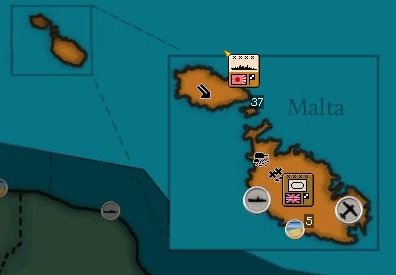 The capture of Sicily was followed logically by the invasion of Malta, which was carried out, appropriately, by the United Kingdom.  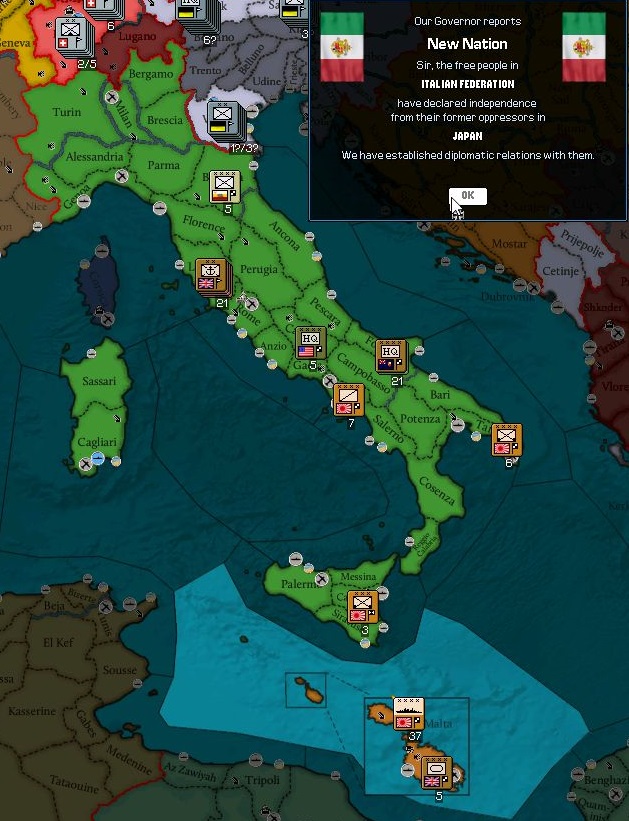 This led to the final surrender of the Italian Republic and the reestablishment of the Federation, which now consisted of the entire nation, barring the Austrian territories. 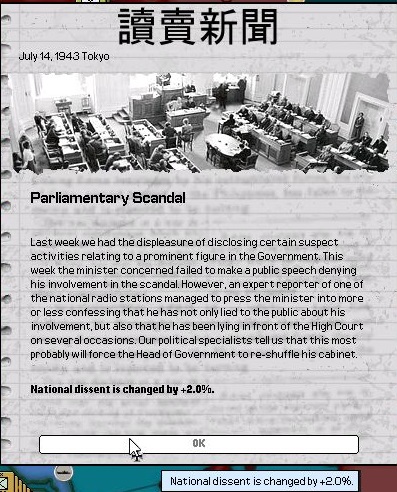 The victory over Italy came and went with barely any notice in Japan. The fact is that the alliance’s leader was in a state of domestic turmoil unseen since the attempted coup. The Taishuto had organized massive strikes, and now the parliament was paralyzed by scandal. 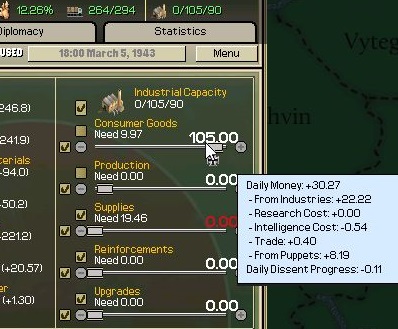 With military victory all but assured, military production was scaled back dramatically, and rationing ended, as the Minseito hoped to quiet the discontent as the election of 1944 approached.  While the Minseito struggled at home, friction arose between the Entente members. When socialist stay-behinds successfully launched a rebellion that seized control of British-occupied Paris, Japan castigated the UK for their lax attitude towards securing France. 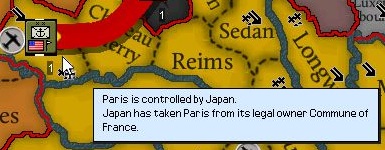 Japan then unilaterally announced they would be taking over responsibility for Paris, infuriating the British. 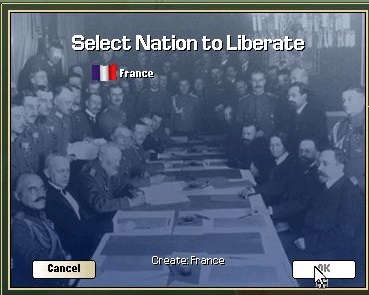 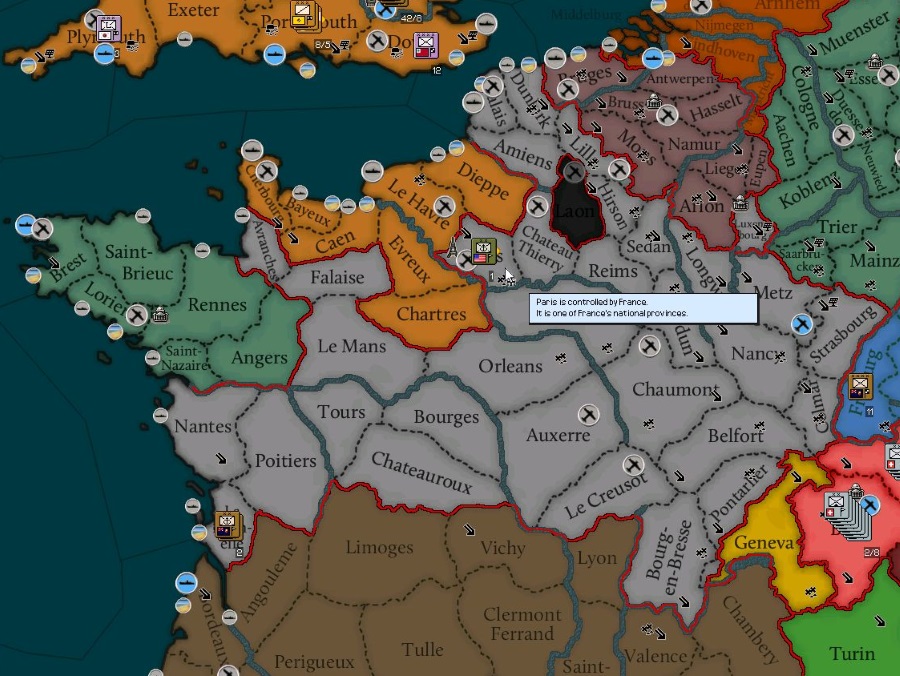 With Japan in control of the capital, the Minseito went ahead with establishing a provisional government for France. While its unknown if the Minseito intended this as underhanded power grab, the British believed that Japan was attempting to freeze them out. “Europe belongs to Europeans” demonstrations broke out across the United Kingdom in protest of what was alleged to be a Japanese plot to subjugate Europe to Japanese economic interests. 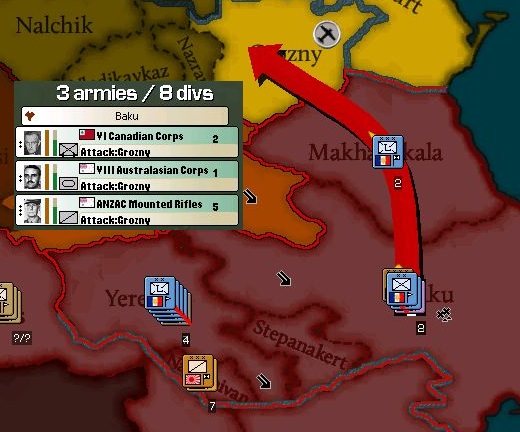  The strain on the Entente was growing, and so the Entente needed victory in a bad way. Luckily, they had the mobile armies in place to take advantage of the Internationale’s collapse in Europe. 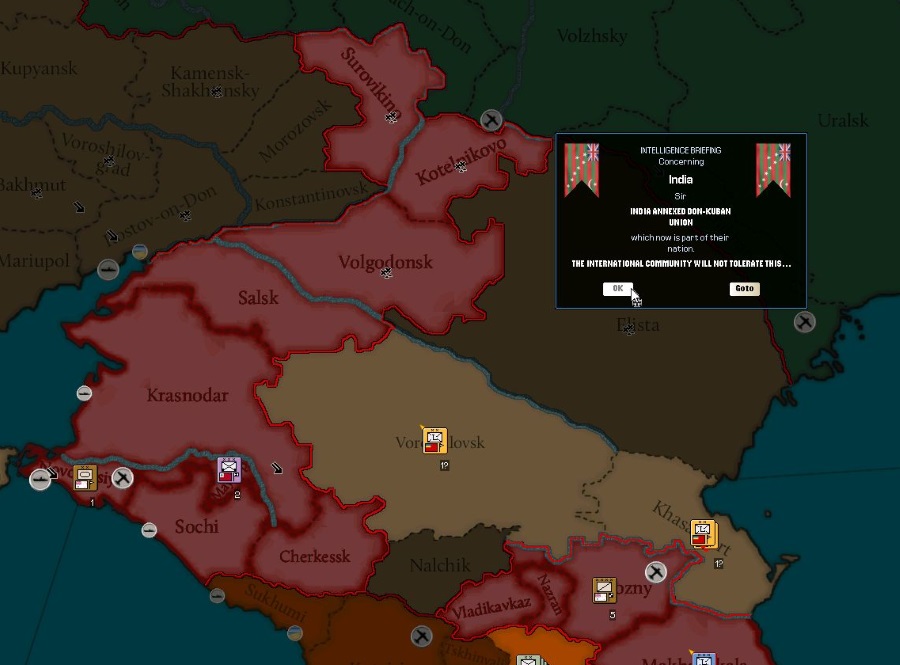 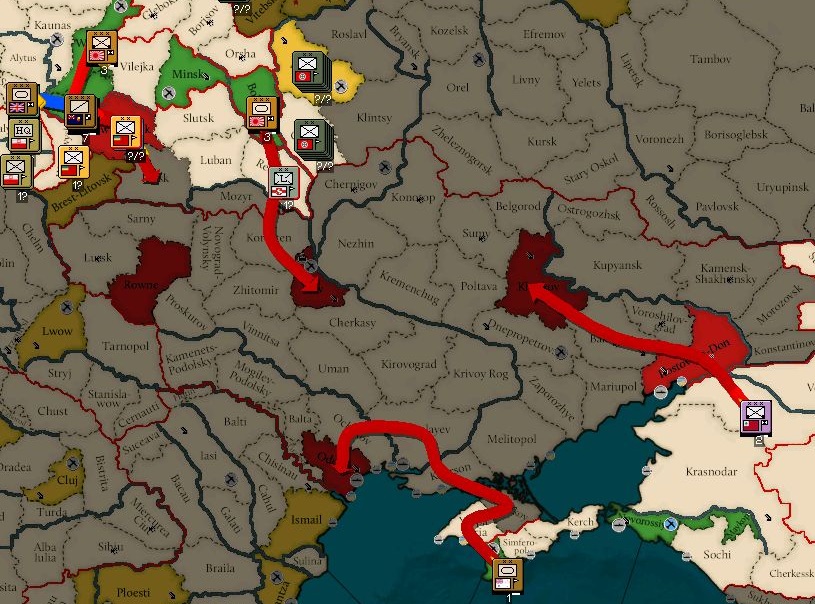 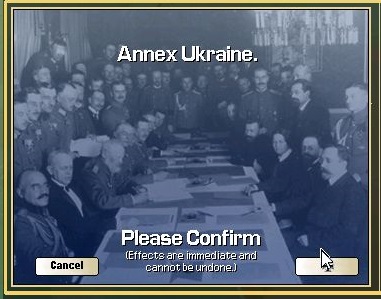 Japanese, Australian and New English mobile armies had the perfect operating space in Ukraine, and the armies in the East looked forward to the expected massive redeployment of the armies in the West to destroy the French Army in the East for good and end the war. 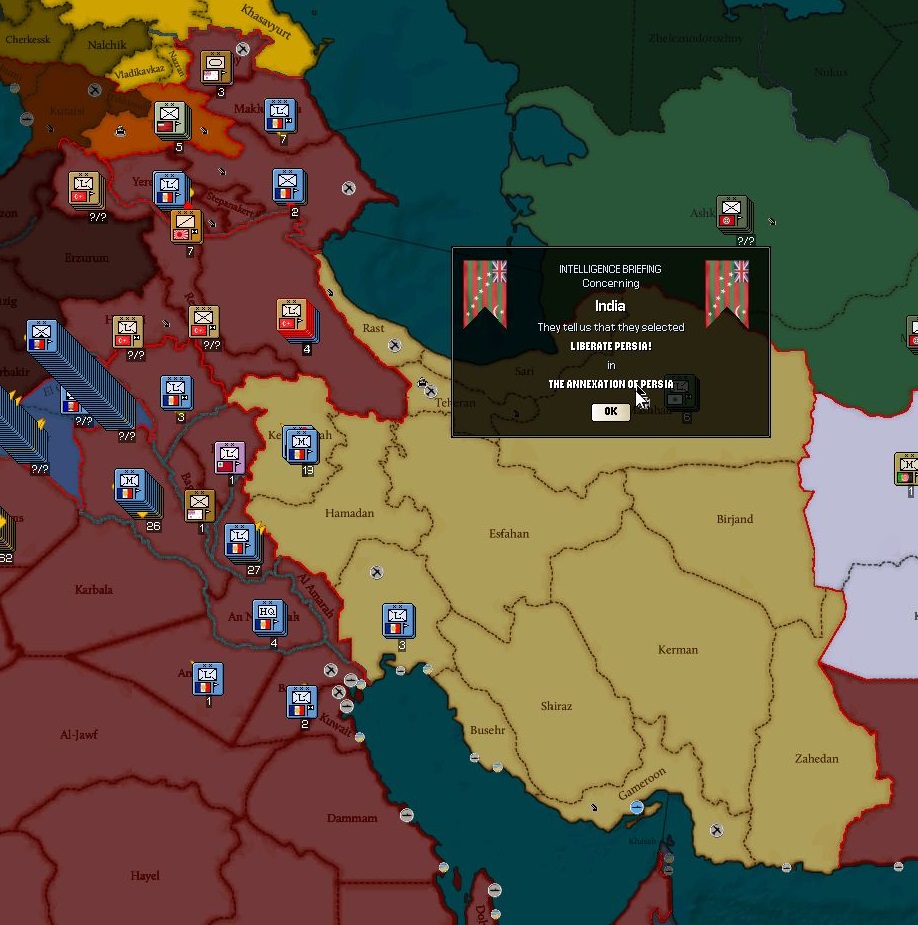 Japan’s reliance on India to stem the French invasion of the Middle East had a cost, as India began to establish client states, beginning with Persia. Japanese capitalists saw this as a negative development, but there had been no strategic alternative at the time. 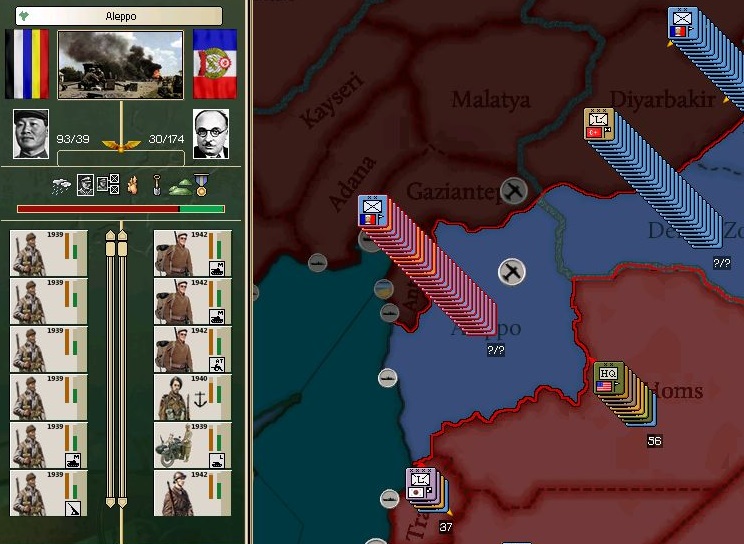 While overall victory was assured, the Entente generals still had an important strategic problem: how to defeat the French host without having to fight a bloody battle all the way to Istanbul. Hundreds of thousands had already died, and some Entente members were threatening to pull out if they suffered particularly heavy casualties in the next battle. 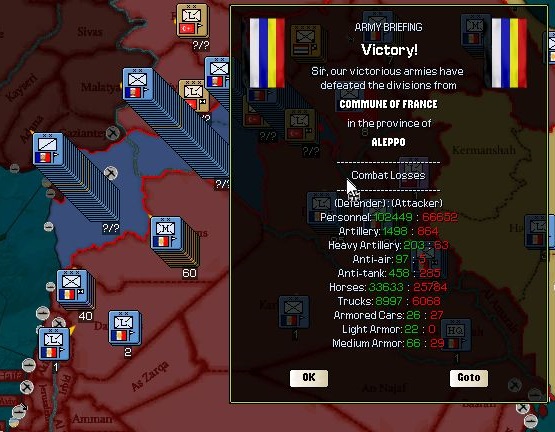 Therefore, the plan was to capture Aleppo and attempt to encircle the enemy armies in Kurdistan. 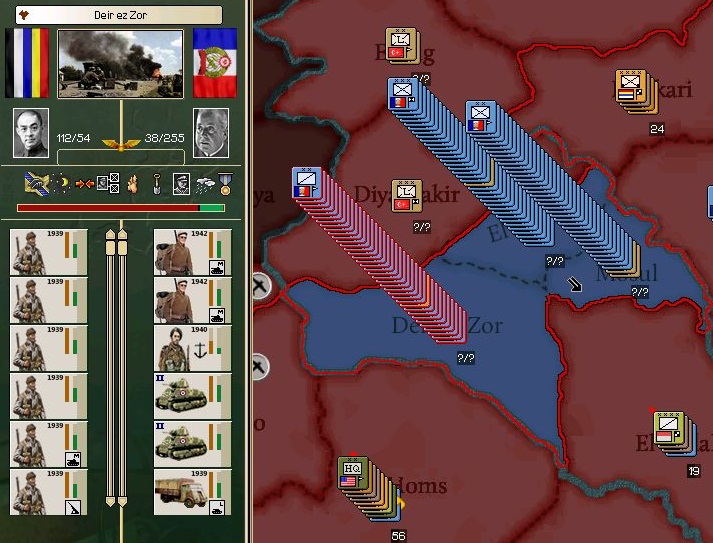 Another sixty thousand casualties were suffered in taking Aleppo, but the French were finally and permanently on the run. 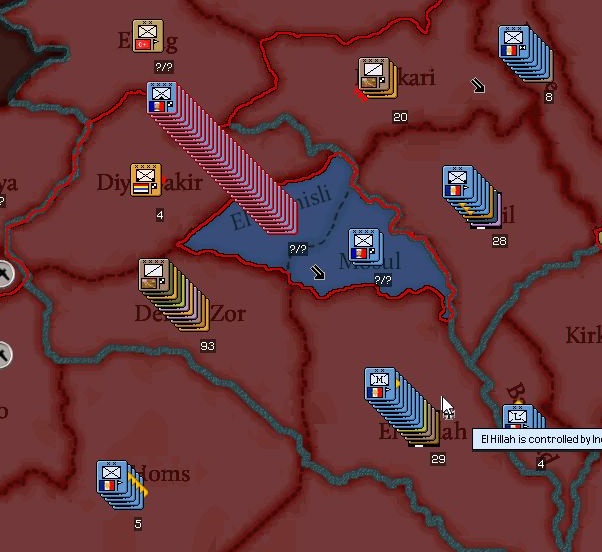 Northeast Syria would fall soon after as the Entente was finally able to sustain an assault in this theater.  The climactic battle would be in Mosul. 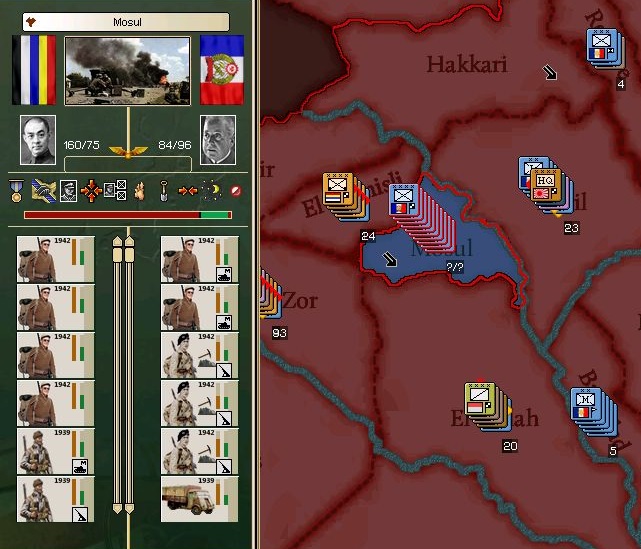 The socialists knew they were beaten but revolutionary fervor and martial pride led the eighty four divisions to attempt a last stand against the one hundred and sixty attacking Entente divisions. 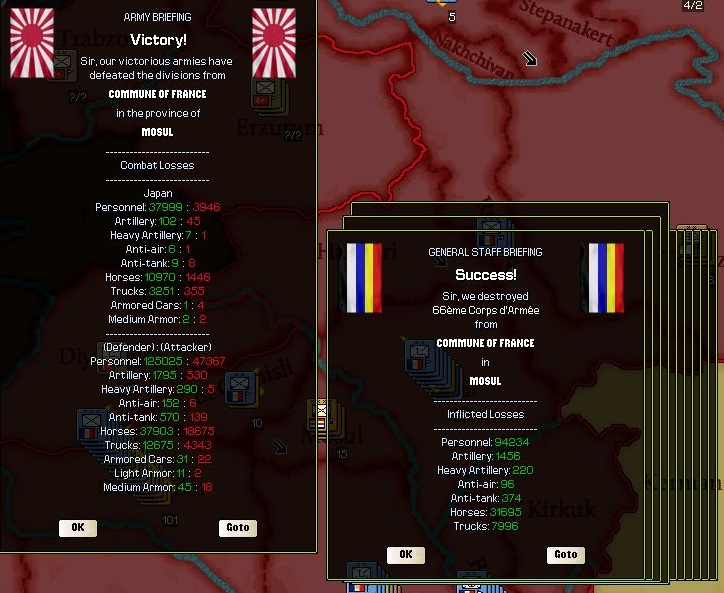 Bravery could not substitute for adequate supply, and so the French in Mosul fought until they ran out of bullets, and then surrendered. Fortunately for the Entente, the French exacted a toll of “only” forty-seven thousand casualties, a relatively moderate figure by the standards of this bloody front. 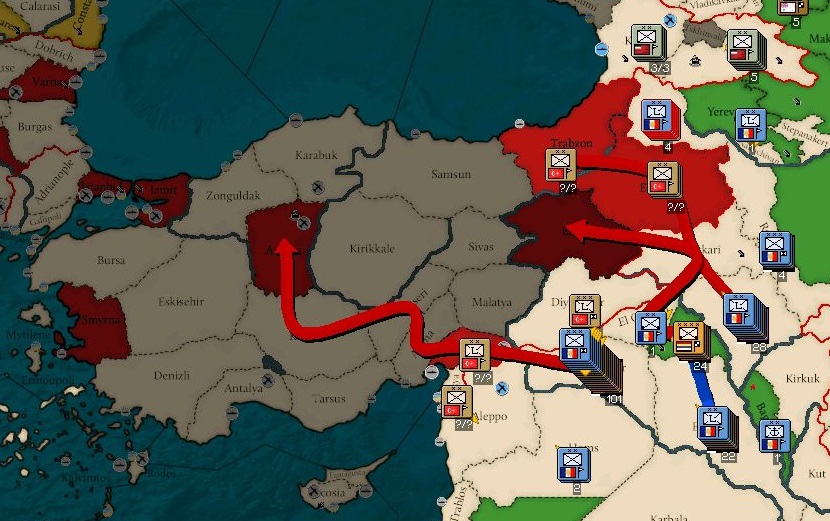 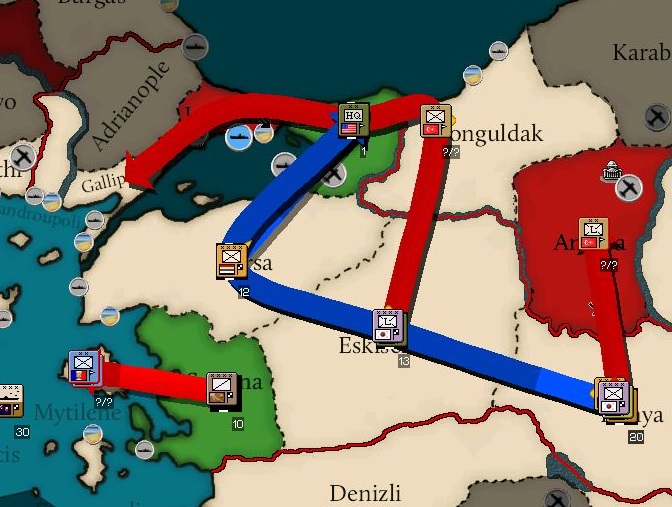 The destruction of the Communal Army opened open the pathway to the remaining Internationale holdouts: Turkey and Bulgaria. 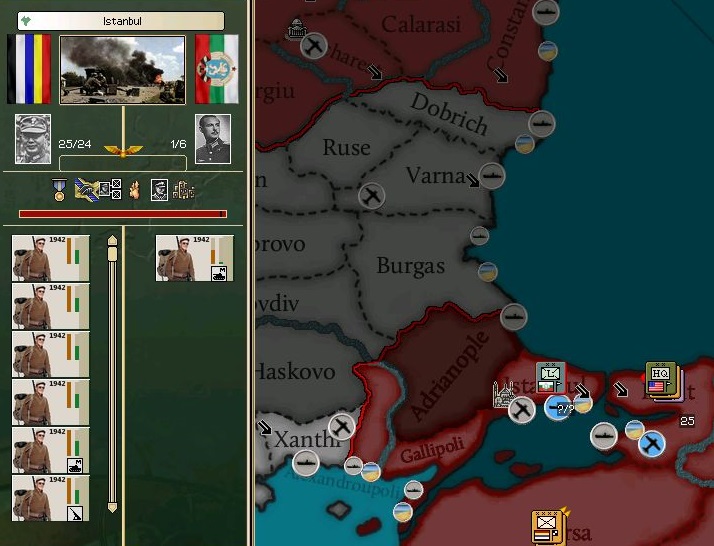 Istanbul would fall only a few weeks after the Battle of Mosul.  Bulgaria was too disorganized to even attempt a proper defense, and were abandoned as the very last remaining Communal French forces prepared to meet their end in Thessaloniki.  Bulgaria fell, and then there was only one city left to take. 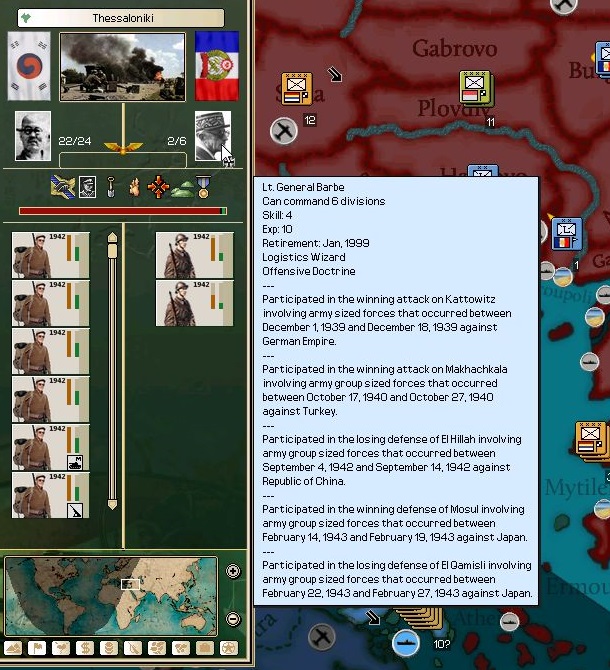  General Barbe, who in the absence of higher command believed himself to be the last remaining authority of the Commune, would travel under a flag of truce to the Korean Army and offer surrender, not just of his army, but for the entire Commune.  The revolution, or at least this most spectacular incarnation of it, was finished. 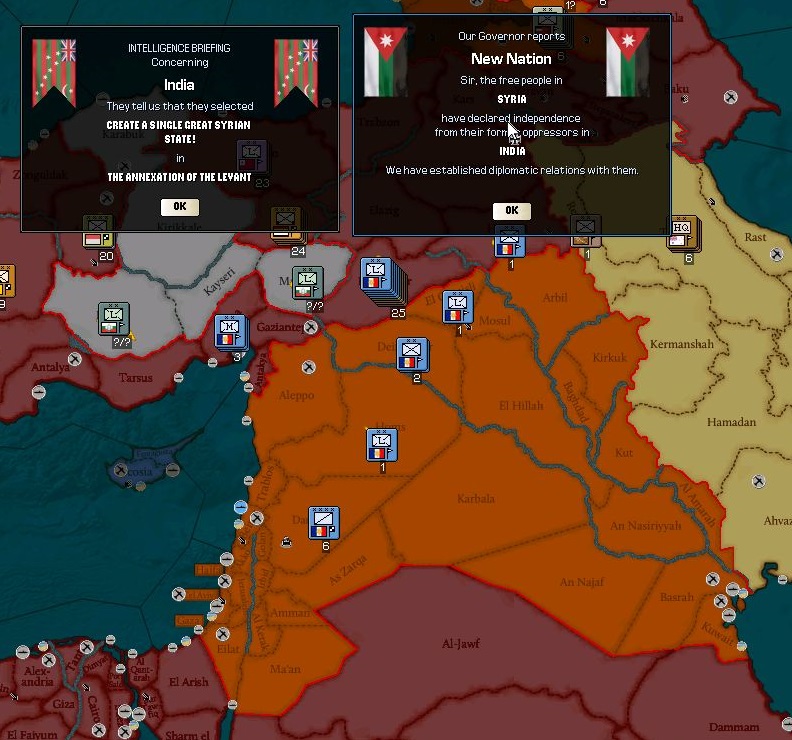 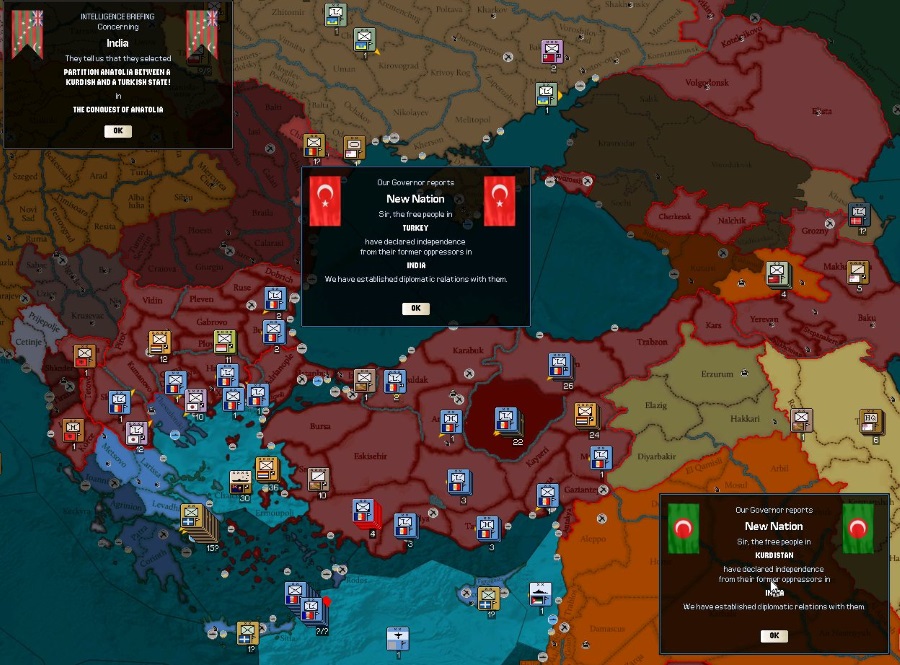 India began implementing a vision for a new Middle East. 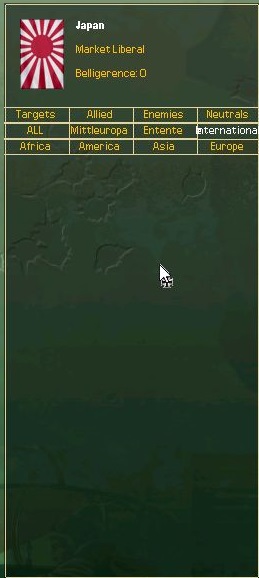 There were no revolutionary powers to use the long-oppressed region as a proxy for their greater ambitions. 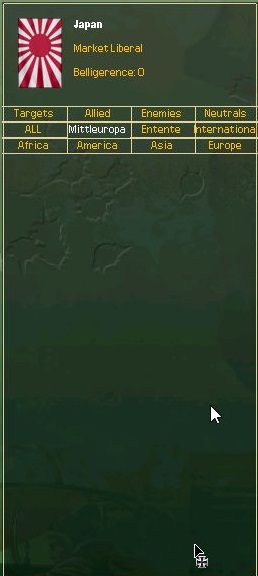 There was no German Empire that would seek to control the pathways to the Far East. 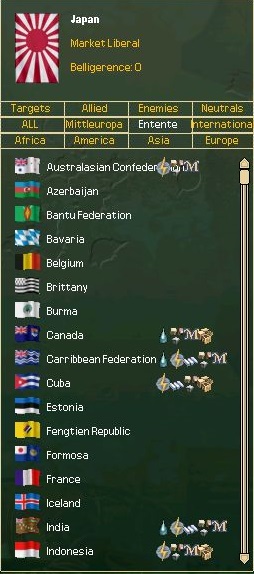 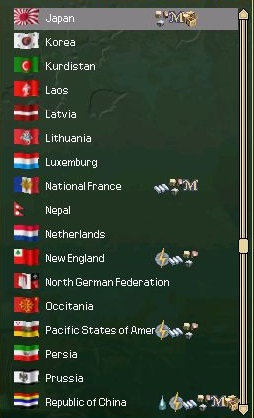 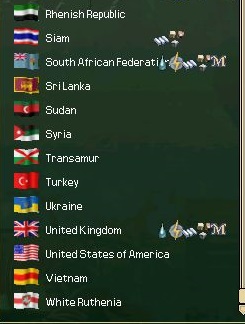 There was only the Entente. 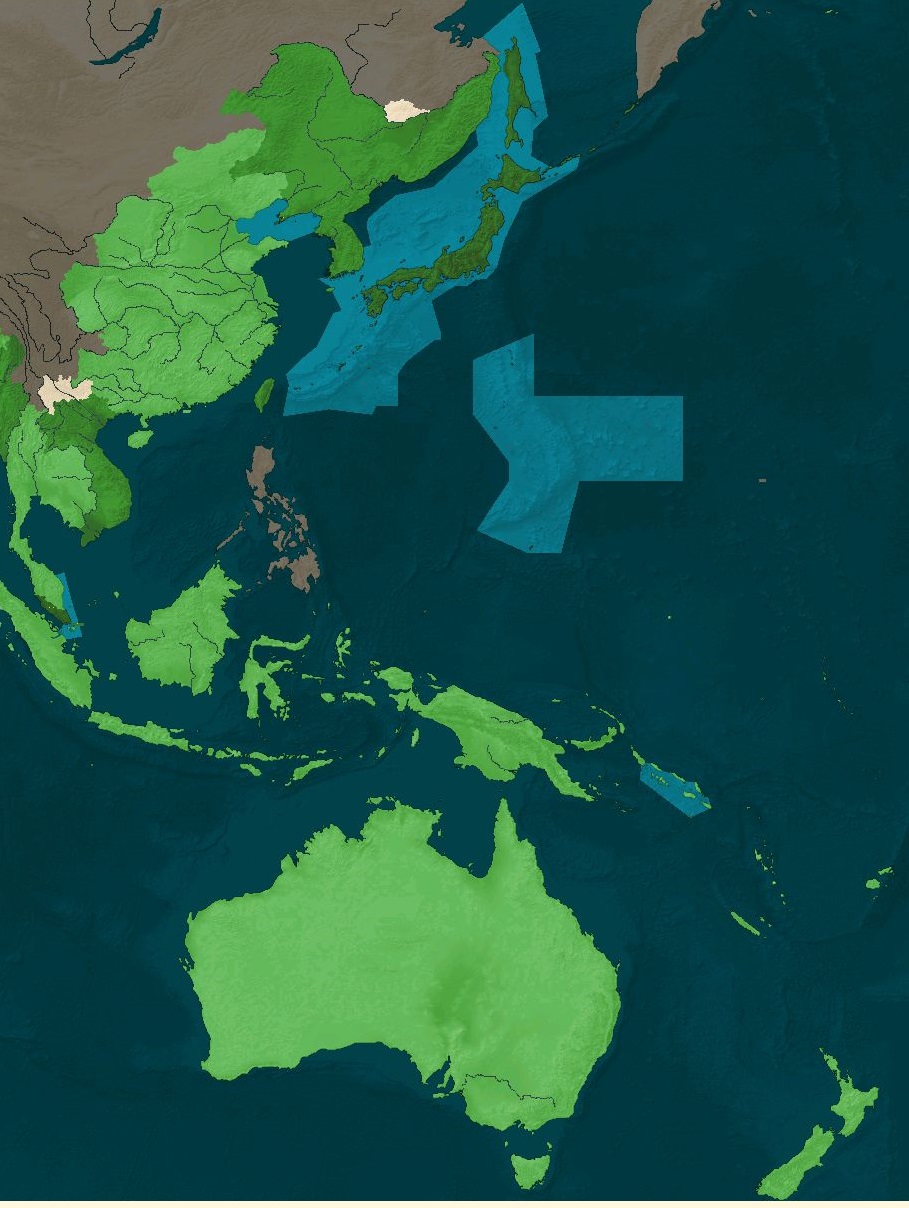 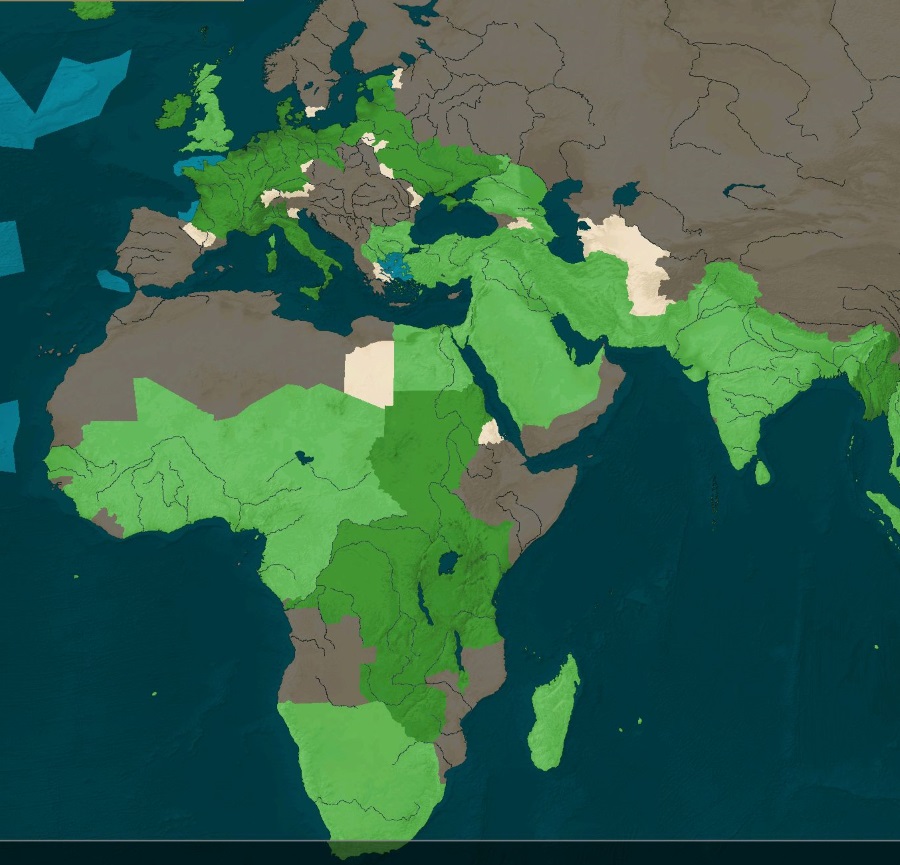  And the Entente was the largest alliance the world had ever seen. Unfortunately, it was doomed. csm141 fucked around with this message at 08:05 on Jan 23, 2018 |
|
|
Chief Savage Man posted:Unfortunately, it was doomed. Yesssss
|
|
|
|
|
Chief Savage Man posted:And the Entente was the largest alliance the world had ever seen. 
|
|
|
|
Wait does this mean we're going back to the Syndicalist timeline? Because that absolutely rules and if you hadn't considered it yet, I think with some formatting work naturally, it would make a great alternate history in oral history form (like World War Z) book.
|
|
|
|
unbutthurtable posted:Wait does this mean we're going back to the Syndicalist timeline? Because that absolutely rules and if you hadn't considered it yet, I think with some formatting work naturally, it would make a great alternate history in oral history form (like World War Z) book. No, Chief said a little while back he's letting the AI have a go at running Japan and posting the results. Well, we are probably going back to the Syndie timeline at some point, but I don't think that's what the last line was foreshadowing.
|
|
|
|
Friend Commuter posted:No, Chief said a little while back he's letting the AI have a go at running Japan and posting the results. Ah, gotcha.
|
|
|
|
They thought themselves safe. In Tokyo, Ottawa, in Boston and London, the capitalists thought they had won. And it is true that the revolution was set back. But they overlooked one thing. And that oversight meant the Entente was already dead, the message had merely not yet reached the body. They overlooked Centroamerica.
|
|
|
|
Ms Adequate posted:They thought themselves safe. In Tokyo, Ottawa, in Boston and London, the capitalists thought they had won. And it is true that the revolution was set back. By god, is that Jack Reed's music!?
|
|
|
|
Postscript One: An Ominous Sunrise (September 19, 1943 – January 1, 1947) Japan is no longer under my control for these final two updates. I am observing as Bhutan with nofog enabled.  As the summer of victory passed into an autumn of peace, the Entente planners believed they were entering a period where they needed to mop up some loose ends. Socialist pressure in Japan meant that Japan would not take part in the repression of the Algerian revolution, which had effectively become an Algerian state, having been allowed to take over the entire Maghreb. Fortunately for the embattled French colonial regime had other allies willing to help.  British and American forces landed to crush the Algerians.  By the end of January, it was all over. The Entente believed that peace was at hand.   The exhausted Canadian Prime Minister, Mackenzie King, retired, passing the reigns off to Louis St. Laurent.  After King’s departure, commentators the world over wondered if the Entente would survive without his influence. An orderly transfer of the Maldives from Australasia seemed to signal that the Entente would coast along without one of its most important leaders.  But then the dominos began to fall. Indonesia was first. Outraged that their troops had been used in the Middle Eastern bloodbath rather than to liberate the Netherlands as they had agreed, Indonesia pulled out of the Entente.  The Caribbean Federation was next.  And after years of being scorned by Japan, National France left as well.  Japan braced for more departures, but they could not expect the next departure. The United Kingdom, long assumed to be so indebted to Japan for its liberation that they would not deviate, resented Japan’s influence over the Continent and left the alliance.  South Africa followed suit, irritated by what they saw as Japanese meddling in the colonial African order.  The most consequential departures were to come. China, infuriated by the lack of action against Russia and the high body count it suffered in the Middle East, pulled out of the alliance.  They immediately began to do exactly what Japanese strategists had feared all during their alliance: call for Manchuria to exit the Japanese sphere.  And there would be no great southern counter-weight to an independent China. Upon the first sign of tension between China and Japan, India immediately announced that it was forming its own bloc stretching from India to Bulgaria and that it would remain neutral in “great power affairs.”     India itself would see a leftist government very ideologically similar to the Chinese one sweep into power. The next decade would bring great advances in India as the government stayed out of foreign wars and worked to expand healthcare, education and infrastructure not only in India but throughout the bloc.  This left the Japanese in control of an array of far off European puppet states, slowly but surely rebuilding. However, other European powers, including the United Kingdom, were very reluctant to engage the former territories of the Internationale in trade as they saw the entire network as a project by North America and Japan to economically colonize Europe. Turnabout, in their eyes, was not fair play.  The recovering United Kingdom, now independent of the Entente, would pursue its own economic policy and attempt to cast itself as a leader of a free and independent Europe. The coming years would see tensions in Europe as the Continent sought to integrate with its logical partner in Britain without offending its trade partners in Japan and North America.  Canada remained as Japan’s last true ally. Every other nation not under Japan’s political control had left the Entente, but the core of the alliance had always been the bond between Tokyo and Ottawa, and each nation hoped they could build a global order despite the recent shrinking of the Entente.   The only other power centers of note were Russia, evil and ominous as always, and South America under La Platan dominance.  Any hope of peace despite the end of the global Entente ended when China attacked Manchuria in the early summer of 1944. Despite their best diplomatic efforts, Vietnam, Burma and Korea remained loyal to Japan, evidently believing that China versus Japan was simply a choice of a master, and that Japan would be a more reliable one.   The latest chapter in the Sino-Japanese rivalry overshadowed a brief war where Venezuela pulled off a land grab against the isolated Caribbeans.  With much of the Japanese army still deployed in Europe, the Chinese made early gains, hoping to secure Manchuria and set up “legitimate” government before Japan could organize a counter-attack.  The Chinese advance would stall out during the autumn, and any strategist who had seen the Japanese in action at any point over the last eight years knew that this did not bode well for the Chinese. The Japanese had command of the seas, and a number of allies to call upon.  While Japanese reinforcements from Europe poured into Port Arthur and began to push the Chinese back, Japan’s allies carried out unopposed amphibious landings.  The hapless Italians would find themselves in a near constant state of disarray, while the Americans were content with holding the defensible Shandong Peninsula. Japanese forces would begin their own landings by the end of January of 1945.  By the end of February, international media attention was focused on the Italians that had managed to get themselves cut off and stranded in inland China, but most observers admitted that Japan’s army in the north was becoming too strong for China to push back.  This renewed war with China had disgusted just about everybody and led to an explosive situation in 1945. The Shakai Taishuto had accelerated its agitation with more strikes and protests as Japan found itself at war with a social democratic nation. When Shakai Taishuto urged Japanese workers to resist conscription, many of their leaders were arrested and they were prevented from running in 1945.  The Seiyukai and Minseito were seen as weak and foolish for having necessitated a second Chinese war in just a few years. Thus, with the support of the military, the hard right rose with a vengeance. The Kokumin Domei would sweep into power in 1945, with far reaching ramifications for Japan and for world peace.  Contrary to the mobility doctrines used in the past, the Japanese preferred a steady push across the entire front. They believed that the Chinese were weak and distracted by landings and the Vietnamese pushing up from the south, and that flashy maneuvers were too risky.  By summer, the Chinese army had collapsed, and it was all the Chinese could do to hold back the Vietnamese in the south while the Japanese rolled over China from the north.  In October, China was defeated. Again.  With popular opinion in Japan blaming the need for the second Chinese war on the Minseito’s permissiveness with the left wingers in China, China was mostly handed over to the Manchurians who would spread their military dictatorship all over China, with Japan retaining control of strategically vital ports and regions. Through the end of 1945 and all of 1946, the Japanese sought to impose a new rigid order over East Asia. The ideal of a billion Asians standing shoulder to shoulder as equals was dead. East Asia was now a pyramid, with Japan on top, Japan’s loyal puppets in the middle, and the now colonized population of China at the bottom. Liberal delusions of equality amongst nations had led to this, according to the Japanese nationalists, and a firm hand would prevent it from ever happening again.  And after all of that, the bloodshed still wasn’t over.
|
|
|
|
Wait, what? How did all those alliance breakers happen? I've never seen something like that before. Seems like that's basically everybody except Canada (who can't leave because it's the alliance leader), Japan and their puppets. The Russia war is going to be really interesting, depending on how much the puppets over in Europe have gotten their armies up. If they haven't, poo poo's gonna get real weird.
|
|
|
|
|
Welp
|
|
|
|
TheMcD posted:Wait, what? How did all those alliance breakers happen? I've never seen something like that before. Seems like that's basically everybody except Canada (who can't leave because it's the alliance leader), Japan and their puppets. As soon as your alliance is no longer at war, members can leave at any time provided they aren't puppets of a member (and puppets move whenever their master does so). The AI decides to leave based on their relations not just with the alliance leader but with everyone in the alliance - as such, at the end of every big war in KR theres a spate of countries randomly leaving the alliance.
|
|
|
MinistryofLard posted:As soon as your alliance is no longer at war, members can leave at any time provided they aren't puppets of a member (and puppets move whenever their master does so). The AI decides to leave based on their relations not just with the alliance leader but with everyone in the alliance - as such, at the end of every big war in KR theres a spate of countries randomly leaving the alliance. Huh. I guess that shows how many times I've actually finished a war in KR. I think I usually just quit with the war technically still going but basically finished.
|
|
|
|
|
I've never heard of this happening but this is also a gigantic alliance that I'm presuming Chief messed with the relations in. If he didn't, I'd say it's because Japan joined a traditionally Canada-centered alliance and threw the balance out of wack. Britain leaving has got to be a bug of some kind.
|
|
|
|
Kavak posted:I've never heard of this happening but this is also a gigantic alliance that I'm presuming Chief messed with the relations in. If he didn't, I'd say it's because Japan joined a traditionally Canada-centered alliance and threw the balance out of wack. Britain leaving has got to be a bug of some kind. I did not actually! A lot of the nations joined by event and so never really had great relations with me in the first place. And United Kingdom was formed from Canadian territory after an event transferred Britain back to them so they don't have great big relations with me by default. At the end, Australasia, PSA and Canada are the only nations staying by their own volition. csm141 fucked around with this message at 21:08 on Feb 9, 2018 |
|
|
|
Well this didn't quite go the way we all hoped.
|
|
|
|
Glad someone's finally doing what needs to be done re: China. Was only a matter of time before they returned the favor.
|
|
|
|
I actually find the idea of a republican China claiming Manchuria vaguely amusing. The more things change~
|
|
|
|
Postscript Two: Nothing Was Learned and No One Was Happy (1947-1949) The Second Russo-Japanese War began in the dead of winter, a time that was not conducive to offensives from either direction, but nevertheless the first month of the war saw some minor gains for the Russians in Manchuria.  A strength of the Japanese army was its strong cavalry contingent which was able to make progress through the Gobi desert.  In Europe, a numerically large but inexperienced army comprised of new recruits from the “new Europe” of Japanese puppet states attempted to push back the Russians but stalled almost immediately in the winter conditions.  Estonia fell within six weeks.  Mongolia fell to Japan next.  Burmese troops entered Lhasa in February and toppled the Russian puppet state.  Japanese puppet state Laos fell to Russian incursion from Yunnan.  And finishing up the flurry of early annexations, Russia entered Riga and sent the nascent Latvian government into exile.  Russia would push back and re-establish their puppet in Tibet about three weeks after Burma put an end to it.  In the midst of the chaotic back and forth, Japan was securing an advantage. They had cut the Trans-Siberian Railroad and, true to Sakai’s doctrine, had separated European from Asian Russia, though the size of the “pockets” were ten or a thousandfold larger than the pockets the Japanese army was used to dealing with.  Japan, eager to prove to its Asian client states that it was a dependable master, landed several divisions to save Vietnam from Russian annexation.  Russian pan-nationalists in Transamur would betray the Japanese and surrender the state to Russia, though Japan still held Vladivostok.  In general, Manchuria was holding.  The push into Siberia had overextended however, stranding some Japanese troops hundreds of miles from support.  In the west, another operation was underway where the European army was trying to outflank the Russian army in Europe by way of Kuybyshev.   In the east, the Japanese tried to shore up the link between its enormous salient in Siberia and China, but failed to prevent Russia from cutting off a large pocket of Entente forces.  As summer rolled along, more rapid maneuvers were attempted, and the Russians were able to cut off four European divisions, and put many more at serious risk along the Volga.  The Japanese response was a major landing in Okhotsk, all the way on the Pacific Coast. The idea was a classic Japanese one, open a new front so that enemy forces would divert and relieve pressure across all fronts. However, the infrastructure in Far Eastern Russia was so bad that it wasn’t all that likely that the forces that landed there would have much chance to run wild.  They certainly would not have any effect in time to cause the Russians to give up the potential of a major encirclement of over forty European divisions.  The four divisions originally encircled on the eastern bank of the Volga were destroyed, but the large European force that captured Tsaritsyn dug in and waited for rescue, confident that the Russians did not have enough forces to flush them out. Meanwhile, the European army was beginning to gain traction and pull off encirclements in Ukraine.  Vladivostok fell in early August.  The Entente’s advantage came in sheer numbers and its weakness came in confusing international logistics systems and allied squabbles. No fewer than eight nations were trapped in Tsaritsyn, meaning that the encirclement was not just a tactical problem but a diplomatic one too.  Just as in China, the Italians attempted an ill-fated amphibious operation.  And the Russians successfully corner nine divisions in Courland.  By the end of summer, the momentum was decidedly in favor of the Japanese, who had created a much more stable link between China and their Siberian salient. They were expanding the front and the Russians did not have enough men or logistical capability to manage the enormous front that stretched from Vietnam to the middle of Siberia and all the way around to Manchuria.  Despite losing the smaller pocket, the larger pocket managed to reconnect with Ukraine proper, allowing the divisions around Tsaritsyn to escape. Once again, the prime Entente directive was to avoid catastrophes that would put the alliance at risk. Massive European casualties in a war that many Europeans saw as necessary was one of those catastrophes.  Russian hopes in Europe hinged on the capture of Grodno, a critical link between Europe and Ukraine, especially as neutral Poland would not allow the Entente to use its territory.  I was curious to see if there was an event like the one in the Mongolia game that would cause all of Fengtien to be annexed by whoever took Harbin. It would have been interesting to see what would have happened but alas, it did not happen.   Another winter approached and the Entente was making progress, but they would not be able to comprehensively defeat the Russians before it set in.  And so, the two sides agreed on a peace. I am now breaking character because this peace makes absolutely no sense and it absolutely sucks.  Russia gained Transamur, Estonia, Latvia and Laos and lost Mongolia, Tannu Tuva, the territory that would have linked them to Transamur (but not the tip of Kamchatka) and a hideous chunk of Central China. I absolutely hate this but if I let the AI roll on they probably won’t fight again, so gently caress it, it’s over.  The nations that took the worst beatings were: France: fought in two enormous wars and had their entire army destroyed. Russia: apparently had a rough go of it against Japan as that was their only war against a major power. Republic of China: bled heavily against the French and then was killed by the Japanese. German Empire: Completely destroyed by France and Japan Japan: Fought and won a zillion wars all over the world. Qing: When you combine this figure with the Republic of China figure you see that China probably got the worst of it in this timeline. USA: Lost the civil war and then provided a lot of infantry for Entente wars, including these last ones against China and Russia. Britain: Lost half their army in Canadian adventures multiple times. Ukraine: Actually, Ukraine may have gotten it worse than China because they were invaded by France, then invaded by the Entente and then had to fight Russia.  This is what exists of the Asian Entente. I hate it.  The big sprawling mess of Japanese puppets in Europe and Africa isn’t very satisfying either, especially since Japan lost Latvia and Estonia and the UK is gone.  North America is one big Canadian mess, except that the PSA is independent. Canada controls the USA as a puppet and never released Mexico.  India are surely the good guys now that the Entente has turned to evil and they are nationalizing things and trying to improve human development.  Russia still survives with their far-right bullshit but with the most hideous borders.  I actually like the National France borders and that they occupied Corsica kind of as a gently caress you to Japan for keeping the mainland from them.  The UK has the right idea, to hell with this bad Entente.  La Plata is a bona fide regional power but they somehow managed to lose a war against Chile.  There seem to be four great land powers in this order: Canada/USA, Japan/Fengtien, Russia and India.  The UK wants you to know that if you come near Britain with a ship there will be a thousand bombers coming to sink your poo poo. The weird country foci here are interesting, like India’s tactical fleet, USA’s CAS fleet, and the Czechs having the biggest force of interceptor planes in the world.  Somehow, Japan has zero carriers. I looked at the sunk ships list and there are all the carriers but nobody is listing as having sunk them (except the few that the British took down). I’m sure that means something but I don’t know what it is. The North Americans and British are the only true naval powers in the world.  Japan and Russia lead the killboards.  In terms of naval kills, the Japanese sinking the British carrier fleet puts them at the top, but France somehow got 7 as well. Italy getting two is surprising as well.  So in the end, the Entente is victorious but it won a dirty rotten victory that should leave nobody happy, but fortunately for all of us… THIS IS THE END. THE COMBINED SYNDICATES WILL BE BACK SOON! csm141 fucked around with this message at 08:38 on Feb 16, 2018 |
|
|
|
Such can be expected from liberals and imperialists.
|
|
|
|
An unsatisfying, ugly peace for all with untenable borders that will surely result in further conflict? Seems like the perfect way to get another generation some good ol fashioned combat experience
|
|
|
Chief Savage Man posted:THIS IS THE END. THE COMBINED SYNDICATES WILL BE BACK SOON! God I can't wait.
|
|
|
|
|
lol out loud at Sensible & Justifiable Brexit
|
|
|
|
Chief Savage Man posted:THIS IS THE END. THE COMBINED SYNDICATES WILL BE BACK SOON!
|
|
|
|
Chief Savage Man posted:
What are the odds the entire carrier fleet was scuttled in Vladivostok?
|
|
|
|
Intro: The Spirit of Chicago “The ceremony has been postponed half an hour…” I hear the crowd groan around me. I notice a few people in the stadium seating get up to leave, but I am not going anywhere, not even if they postpone this thing another six hours. I would never dream of missing this anyway, but it’s good to be able to just sit down and do nothing for a spell. 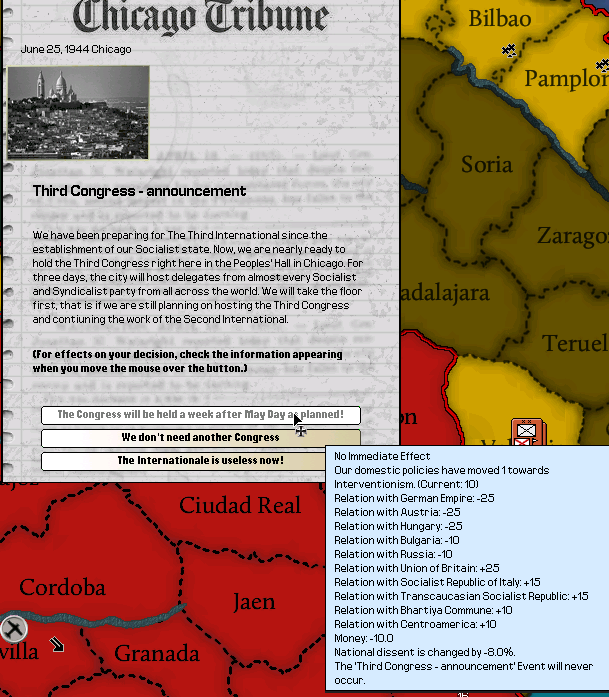 My life has been hell for a month. It was on June 25th when Chairman Gitlow made public the plans for the Third Congress in Chicago, but it was a week before then that we were told about it. All of us pages and apprentices were taken from our delegates’ offices and put to work setting up the event. And boy, it sure has been an event. 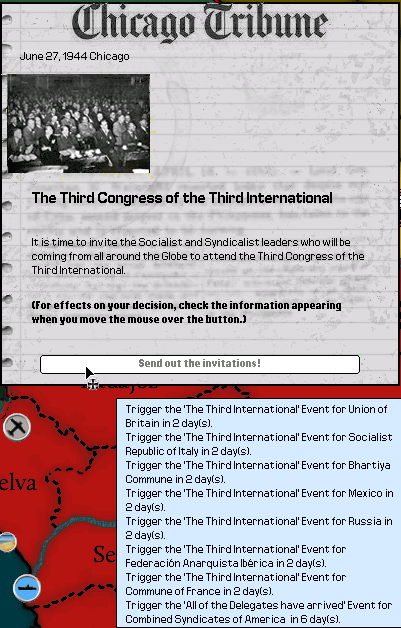  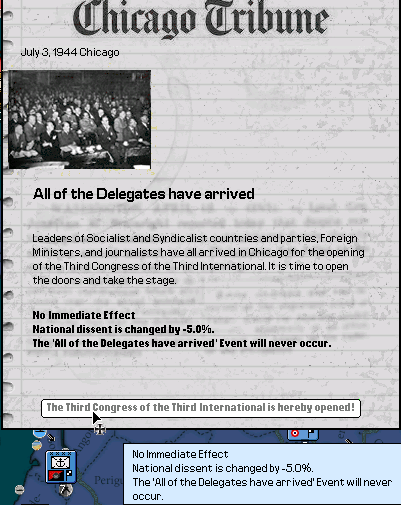 The socialist world has descended on Chicago. I’ve spent the last month doing all kinds of preparatory work, finding housing for the delegations in a city that has seen its population explode during wartime, a task that was made all the more difficult by the condition that it had to be nice housing. Unlike the apprentices, the delegations would not be satisfied with being stuffed into tenements that still had bullet holes in the walls from the wild days before the civil war, remnants of the gun battles that would erupt in the streets when the police would try to break up I.W.W. meetings. My name is Leon Thomas Jr. and I remember that Chicago, dirty and desperate and on the verge of breaking. I am from here, although like many Americans, I am also from somewhere else. Today, I sit in the new Chicago, a rapidly growing and beautiful disaster of a city around which the world revolves, a place of no idle hands, lots of frayed minds and millions of hopeful souls. I’m in the third row of seats in front of a stage in the center of Soldier Field, amidst some of the most powerful people in the world. One year ago, I was in Claiborne County, Mississippi, helping out on the black syndicate’s soybean fields by day and trying to get a good schooling at night. Five years ago, I was in this city, with my mother and father in a tenement not much different from the one I share now with seven other apprentices. Twelve years ago, my parents sold drat near everything they owned to get us on the train to Chicago after my uncle was murdered by some white men because they thought he was out of line with a white woman. I saw it with my own eyes. I was six. I am eighteen now, and I’m sitting next to another Chamber apprentice, my love and my steady girl, Samantha Pryor, a white woman born of the Alabama gentry. On the other side of her is my mother, who lost her brother because of a woman like Sam. The two of them are having a grand old time, talking about statues, of all things. Every day during the war, someone would wistfully talk about getting back to normal once the war was done with. Well… seven and a half years of war are done with, and yet nothing about 1944 resembles the normal of 1936. I am living proof of that. Sitting here and reflecting on all of that? Next to my loved ones? Not having to break my back and run myself ragged trying to find enough prayer rugs for the Algerian delegation? You better believe I could sit here forever. 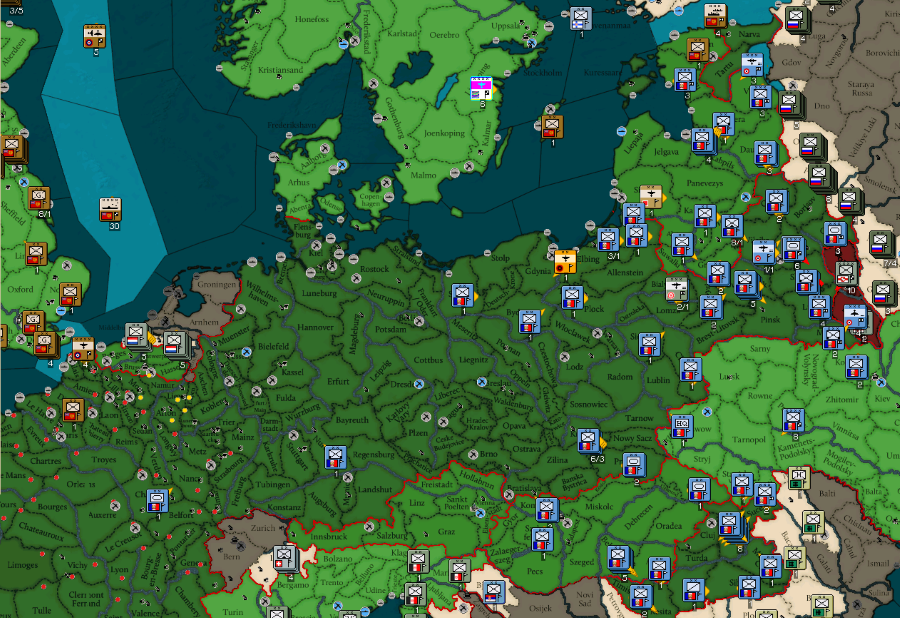 Sam hasn’t had an easy job these past three weeks either but I’d take her job over lugging furniture and painting rooms. She worked with the flag team, getting enough flags made for all the countries attending. Every attending delegation, even from the non-member states, had their flags peppered all over the city. This is what I mean when I say this is an event. It isn’t like the First or Second Congress, it’s more than just a big meeting. It’s a demonstration to the world, and especially to conquered Europe, that America is big, strong and happy to have you on our side. You can stick with us and we’ll lead you right, or you can stand in our way and get bowled over. That isn’t what we were saying explicitly of course, but a year in the Chamber has made me good with subtexts and implications and things of that nature.  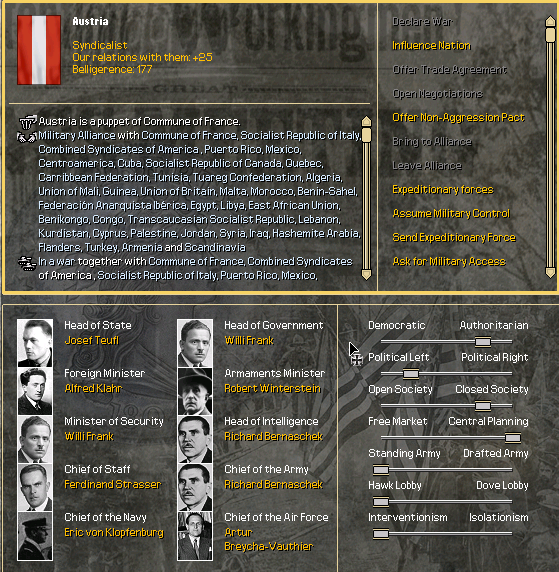 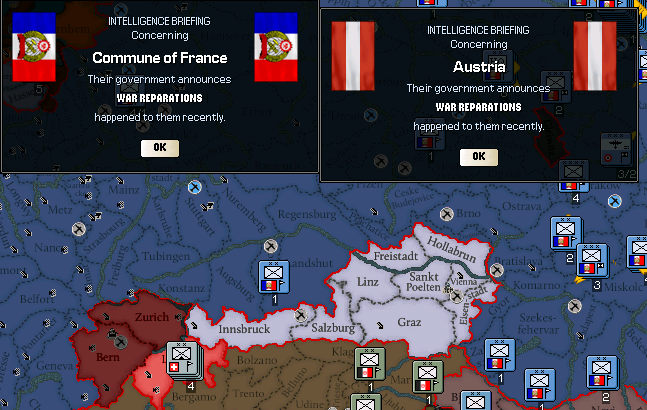 Marion, my youngest sister and twelve years younger than me, is fascinated by Chicago. She was a baby when we went back to Mississippi, so this is an overwhelming spectacle in her young eyes. “Miss Samantha, what are all those flags for?” “They’re for all kinds of different countries all over the world!” “Which one is that for?” Marion says, pointing to a red and white flag. “Hush now, Marion, don’t bother Miss Samantha.” “Oh no, Mrs. Thomas, she’s fine.” Sam picks Marion up and sets her on her lap. “That one is for Austria. There’s lots of big tall mountains there!” My mother glances at me with a wry smile. She tried like the devil to get me hooked up with her friend’s daughter down South and she’s too stubborn to admit that I’m my own man now, but I can sense that she approves of Sam, even if she won’t say so yet.  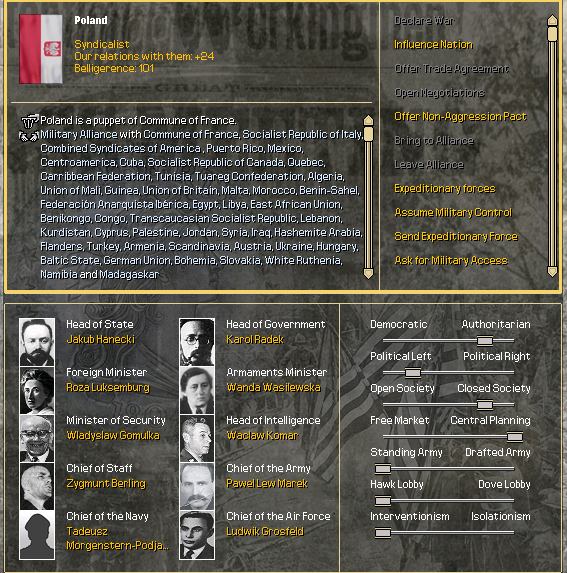 As we wait for the ceremony to begin, Sam tells Marion about Poland. 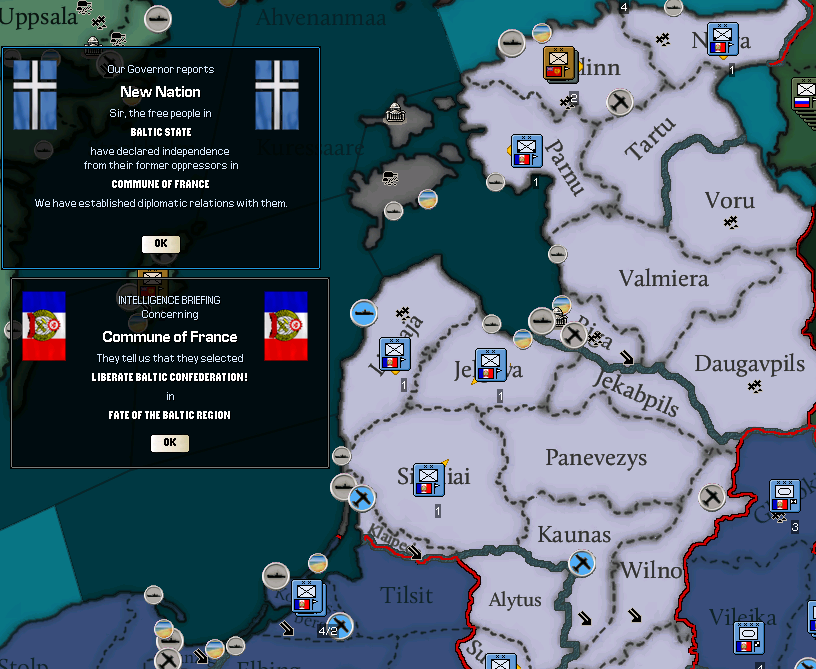 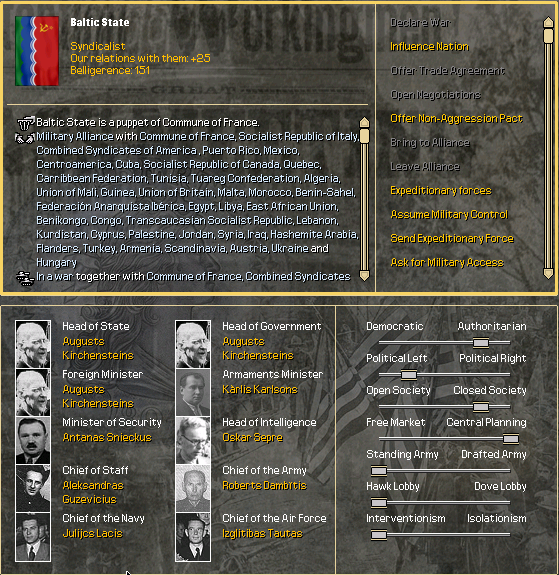 And then the Baltic State. 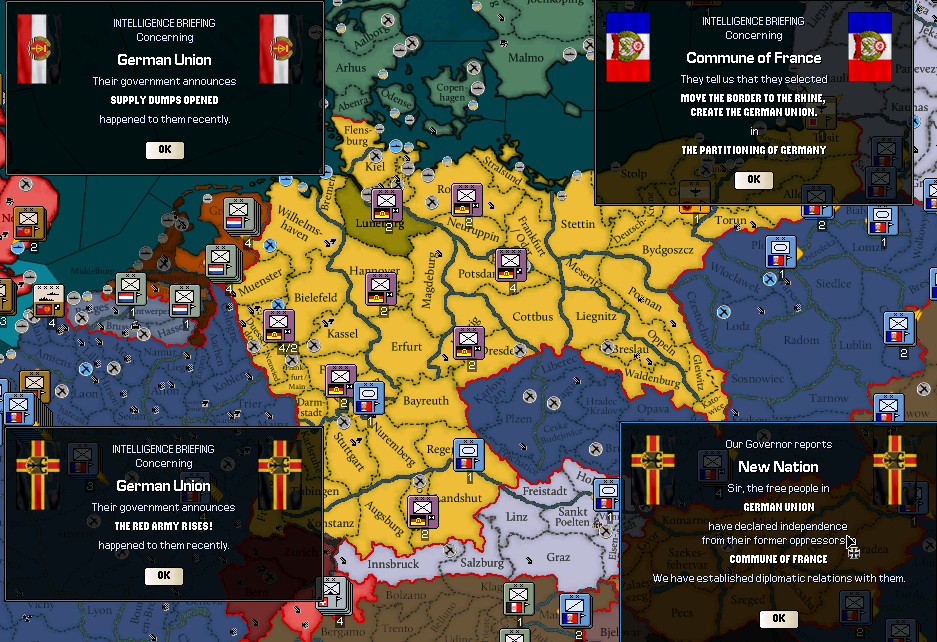 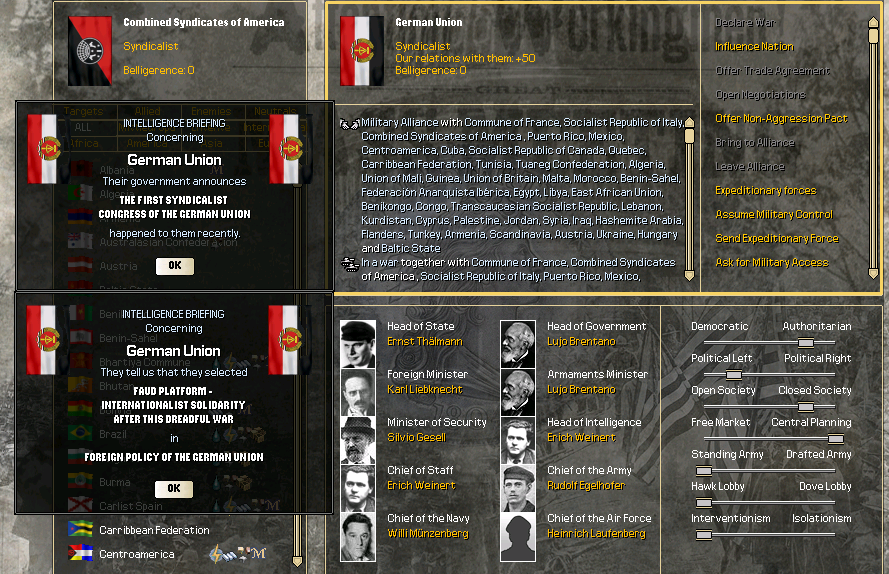 “Germany!” “Ain’t Germany the bad guys?” 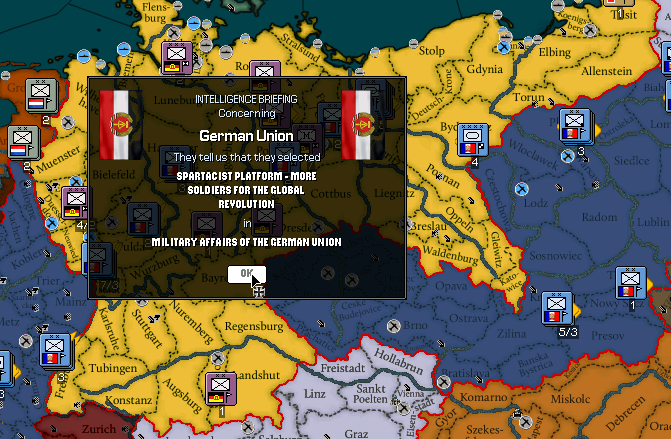 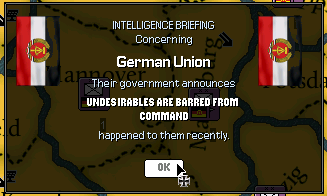 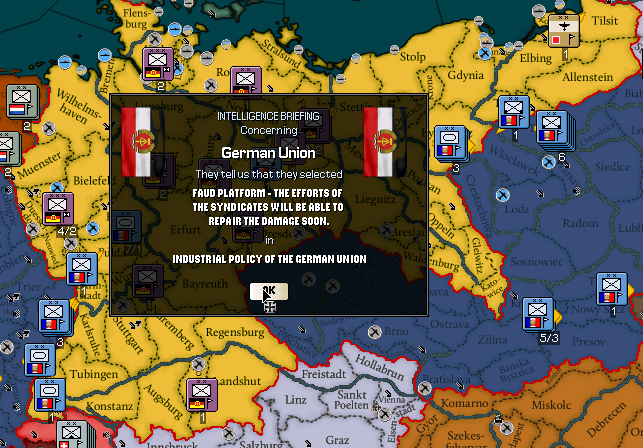 “No, that was just the Kaiser, but he’s gone now. The German people are our friends.” Marion nods understandingly. Sam would make a good teacher. 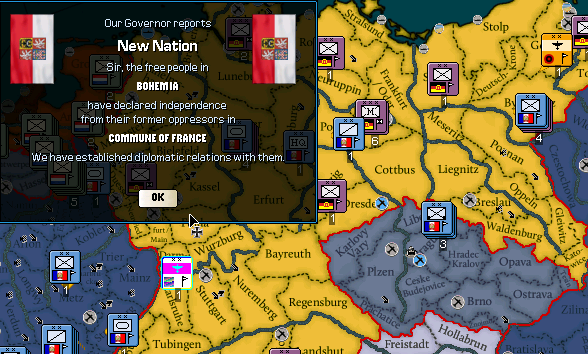   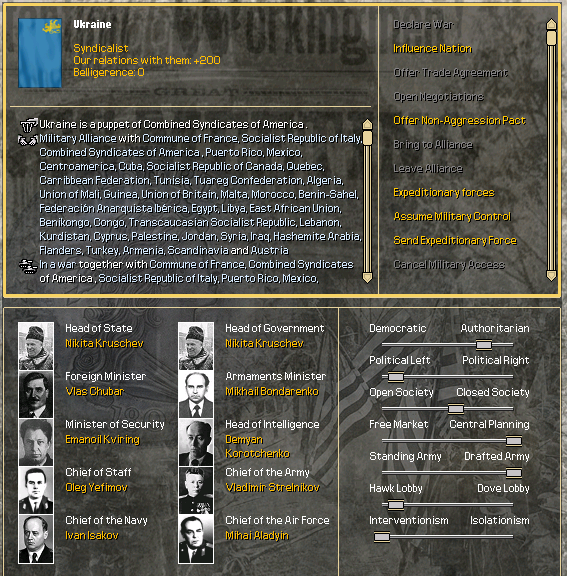 I chuckle at few of the nations mentioned, remembering Sam complaining about her vexillological struggles. It was hard for her to get proper flags made when the nations they represented were a few weeks old and couldn’t decide on what flag they wanted. 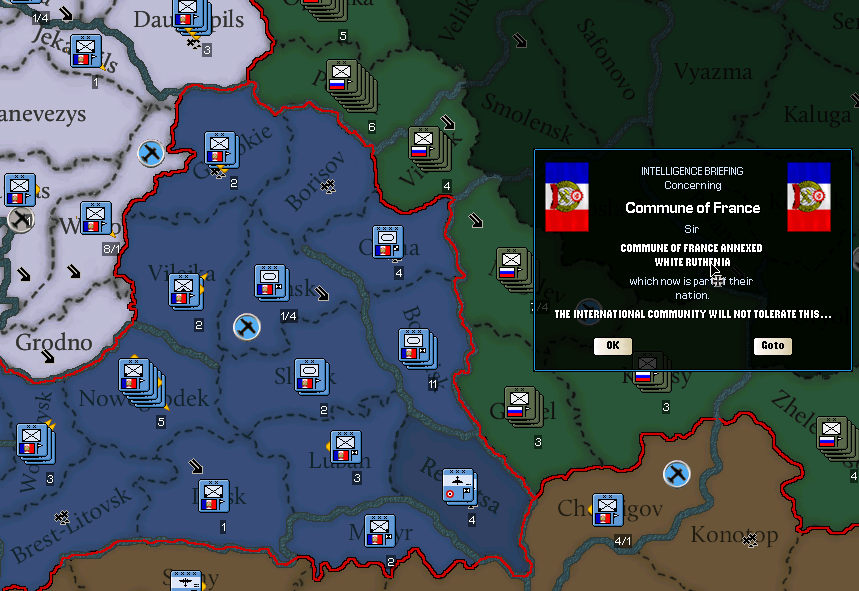 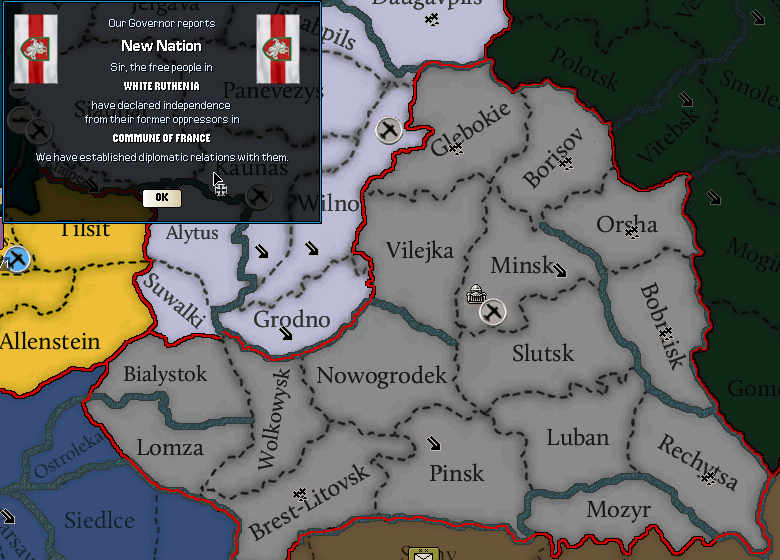 I continue to follow along and I’m impressed by her new encyclopedic knowledge of flags. “That’s White Ruthenia.” “White like you, Miss Samantha?” “MARION!” My mother’s volume turns heads three rows ahead and behind us. Sam and I can’t help but laugh. Sam’s white skin has been an unspoken matter since my parents met Sam for the first time yesterday. Too polite on both ends for all of that. And there’s something about this city at this time where it just seems foolish to worry about it. If you make a fuss at a white and black person being together, somebody is bound to chastise you for worrying about bigoted nonsense with a war going on. Sam and I are friends with two homosexual boys, even. My mother would fall down dead if she knew that, but the cosmopolitan permissiveness of central Chicago and its political class seems to get to everybody in our world eventually. We don’t get into the drugs or nothing, but it’s one of those things: you don’t worry yourself about what we’re doing, and we won’t worry ourselves about what you’re doing. Don’t get me wrong, I know there’s lots of racists we’ll have to deal with down the road, but… that’s down the road. Today, I’m happy.  It’s been good to talk to my parents, to get a feel for what’s going on outside Chicago. People are happy that we won the war, they’re hopeful about what’ll come next.  Sam is still worried about the eternal war thing that Delegate Perkins got her on about. It’s true that Australasia is still at war with us, but it’s not like they can hurt anybody anymore. 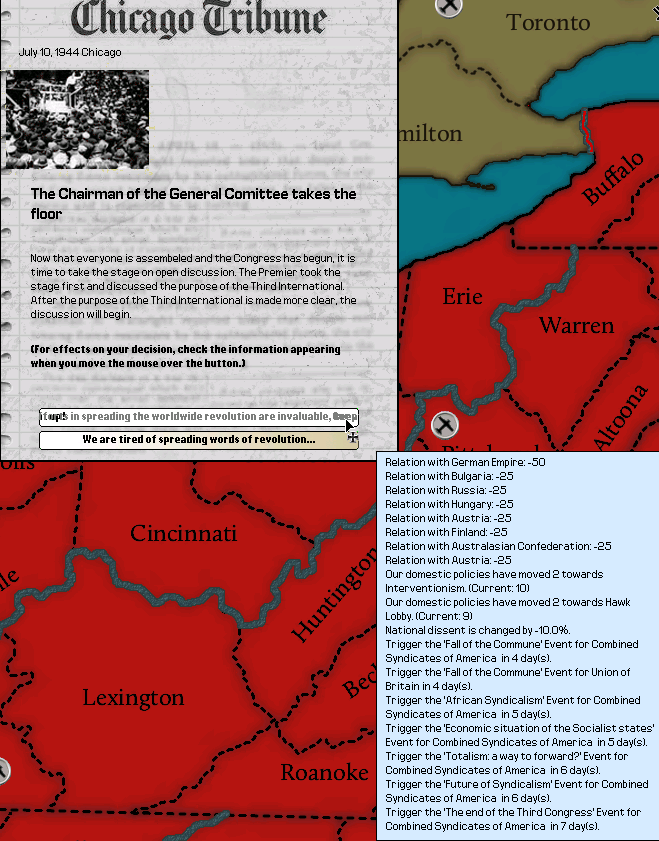 And Chairman Gitlow did make it sound like there was more fighting to do, but that’s the way socialists talk. Struggle this and that, it doesn’t mean shooting necessarily. 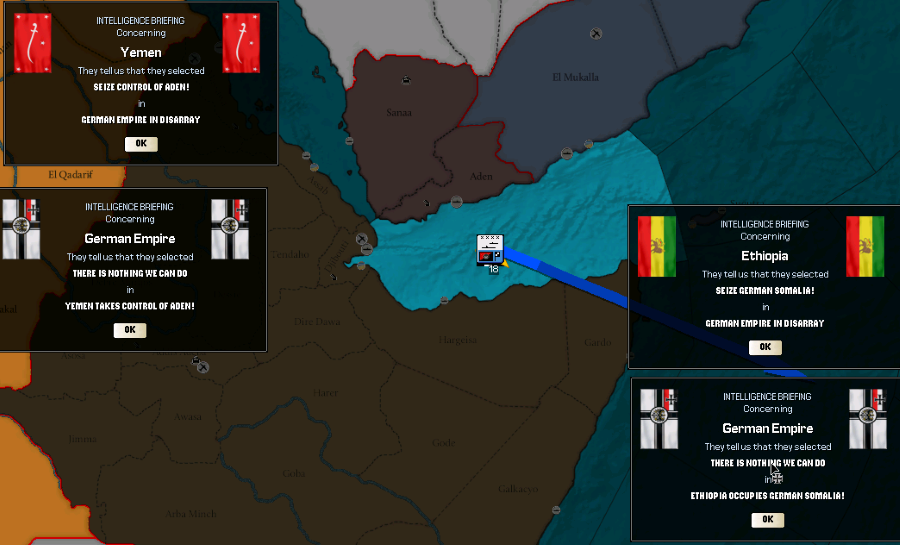 The Imperial Germans are still hanging on in the colonies, yes, but it is not unreasonable to think that local powers will start leaping for the scraps of the beaten Empire. Who better to liberate these colonies than the colonized people themselves, after all? 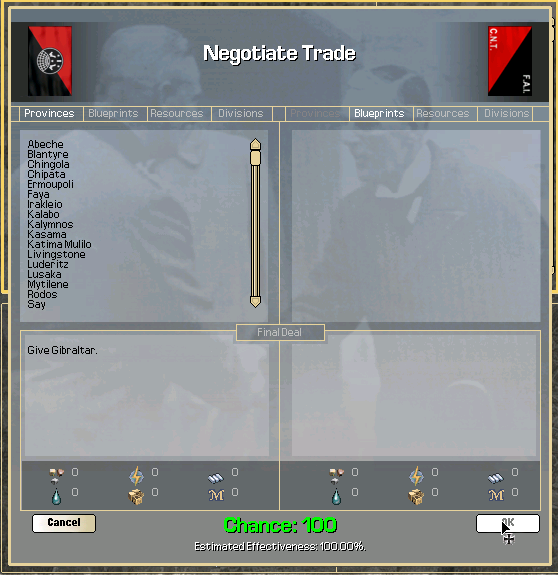 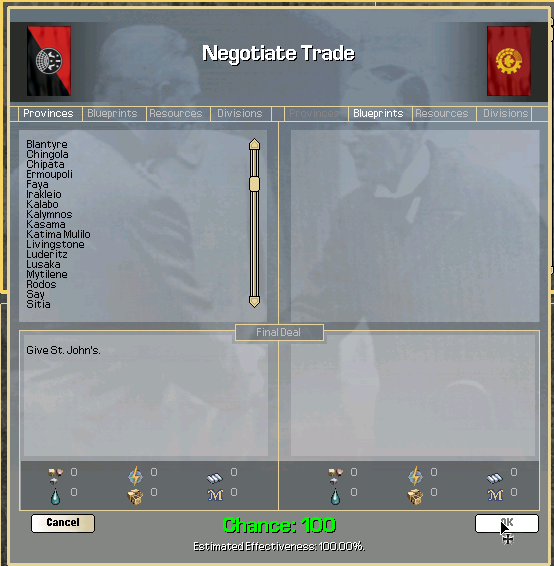 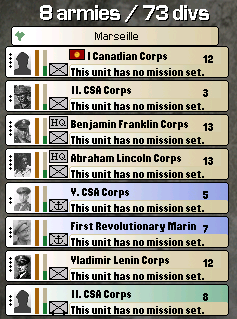 The troops are coming home, and we’re giving those bases we borrowed back, so I feel pretty confident the warring is just about over. I’m not any great history student but I know enough, and I just feel it in my bones that this is different. Peace is really coming. A quieting of the crowd gets my attention and I look up to the stage to see Louise Bryant slowly walking to the microphone. She doesn’t look well. Word is that she has some kind of rare disease. The entire stadium rises to their feet and I rise with them to applaud the widow of dearly departed Chairman Reed. Her voice, its shakiness masking the conviction of her old warrior’s soul, rang out across the stadium through the PA system. “I apologize for keeping you all waiting, but I lost track of the time. There were some interesting resolutions just passed in the Congress.” She waves her arm to the northwest towards the towering Hall of the People near Haymarket Square, visible from some of the seats. The building that I worked in for a year as an apprentice is now filled with the delegations of the Congress, hammering out what the post-war world will look like. 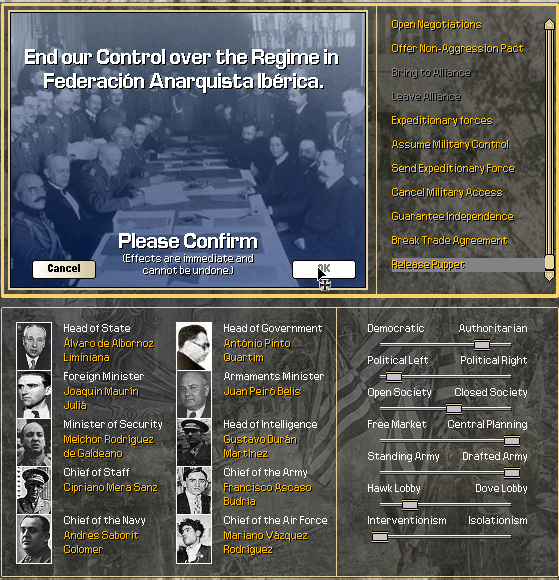 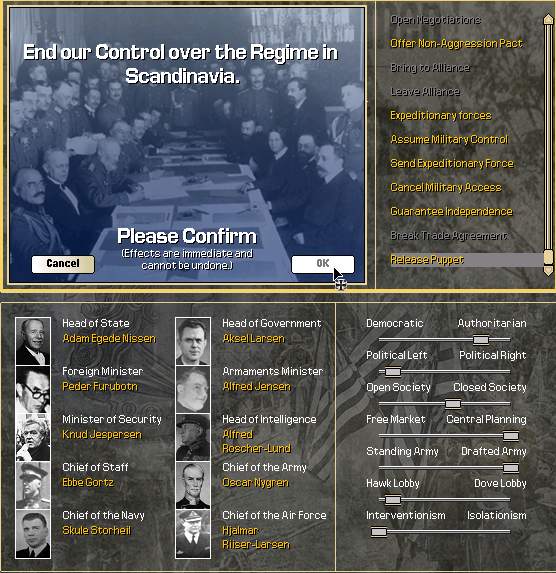 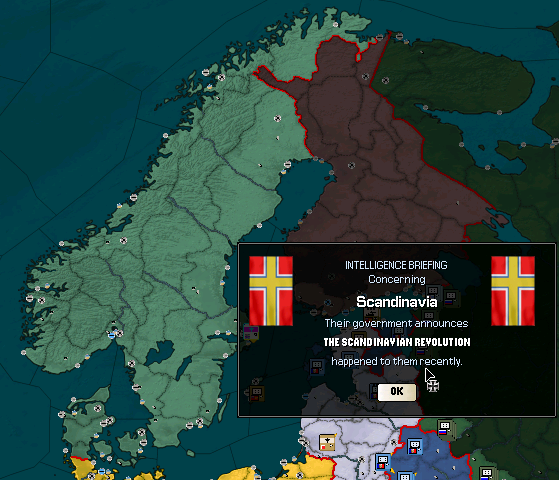 “I’m happy to announce that Iberia and Scandinavia have been admitted as full members.” The crowd reacts with polite applause. 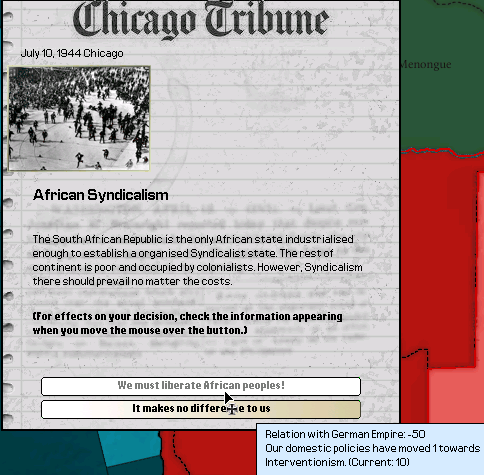 “And I am also happy to announce that the Congress has agreed to commit fully to the liberation of the entire African continent.” My mother claps more enthusiastically than I would have expected her to, and Marion and I follow her lead. I can hear sporadic cheering and hollering out in the crowd. 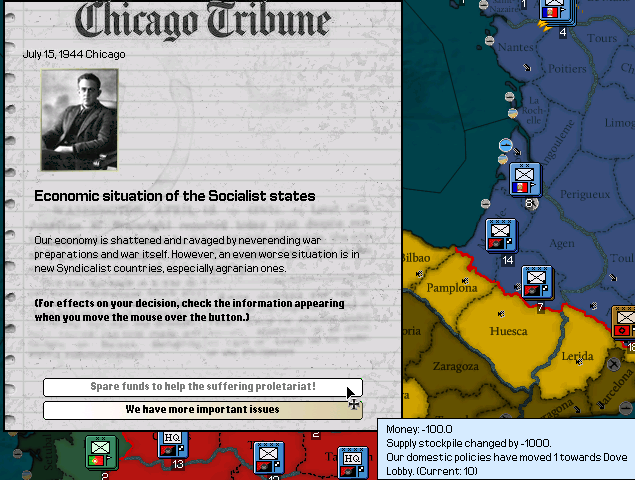 “The other resolutions passed today are that the Combined Syndicates will use its industrial and agricultural resources to help rebuild Europe!” Polite applause. There’s a handful of jeers to be heard. Everyone knows that this means the long wartime hours and rationing aren’t going away as quickly as most Americans would like them to. 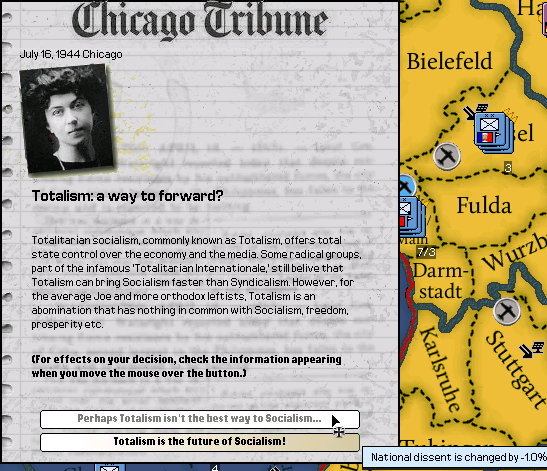 “And the final resolution, introduced by our own Carlo Tresca, is a denunciation of Totalism and a commitm-” The crowd roars, so loudly that it makes Louise cut off mid-word. My mother applauds even more intensely for this. I’m taken aback. I know that people don’t care for the idea, but I really underestimated just how unpopular the tendency had become. Ms. Bryant clears her throat to quiet the crowd and continues. “A commitment to the fundamental rights of individuals. And now, finally, I can present to you our honored guests.” Behind her are twenty seats. The sixth one contains my father. He is beaming like a fool and looking at us. He has his Silver Star and Purple Heart pinned to his chest. My mother waves subtly at him, trying not to draw any attention to us. I give him a nod, as it seems like something one man does to another he respects. The twenty people on stage are twenty featured recipients of medals, one for each medal. The massive crowd is certainly here to hear the words of the famous war heroes, but they also get to sit through the speeches of the people who received medals for excellence on the home front. That’s what I’m here for. After five speeches, Ms. Bryant walks to the podium and says: “Mister Leon Thomas Senior, of Port Gibson, Mississippi: recipient of the Order of Architects of the Revolution, First Class. He is honored for his ingenuity and dedication in founding one of the most productive agricultural syndicates in all of North America. His work fills the bellies of our soldiers overseas, and he provides a shining example for all workers across the world.” My father stands and limps to the podium. Ms. Bryant, with shaking hands, pins a medal to his chest next to the other two. I can’t see it very well, but I can make out a star. The crowd is applauding, not just politely but with genuine enthusiasm. My mother is wiping tears from her eyes. I am not as emotional as I probably ought to be, which is slightly confusing. My father shakes Ms. Bryant’s hand and steps up to the microphone. What follows is the surreal experience of hearing my father’s voice broadcast to tens of thousands of people: “Like Ms. Bryant says, I am from Mississippi. But I am also from Chicago. I had to leave my home for this city because I was afraid the Klan would kill my baby boy, who is now such a grown man sitting with us today, a man I am so proud of.” The crowd boos and jeers at the mention of the Klan. Sam squeezes my hand. I feel a tear form. “Chicago was home to us, but the Abraham Lincoln Corps promised me and many other migrant folk up this way an opportunity to return to our first home, to take back what we were forced to leave. So I went, a Union State sniper got me in the leg, and then we won.” I smile at that line, and the crowd cheers at its simple triumphalism. “So when the civil war was over, and all the mean folk who terrorized us way back when were gone or dead, I sent my wife Minnie, who is also with us today, a telegram. It said, we got our home back, but it doesn’t feel like home without you.” The crowd loves my father. I know that he’s a good politician and motivator down on the farm in Mississippi, but I didn’t think he could get Soldier Field going like this. “My grandfather was a slave. My father was a sharecropper. My whole line has toiled in the service of some rich landowner who didn’t give a care on this Earth about us. So, when my family came back to Mississippi, I made a promise. My father and his father and his father worked themselves to death and went without while some other man got rich off of their toil, but Lord, I promised that my children and their children will never toil for some other man’s profit again, and they will never do without unless every other man, white or black, in this whole country is doing without.” This quintessentially proletarian sentiment gets a louder reaction than anything else so far. He gingerly rotates on his bad leg and gestures to a few of the other medal recipients in military uniforms. “God bless these heroes here who fought to keep us all safe. They put themselves in danger for us, and I thank God for them every day, because without them, none of us would be here now.” I can barely hear my mother over the cheering. “Lord, he is a politician, isn’t he?” He definitely is. He’s giving the same routine to Soldier Field that he would give in the church during the syndicate meetings. His oratory experience is evident in how he waits for the crowd to die down just enough before he continues. “They fought for what they loved, to provide a future for all of us. And now that the fighting is dying down, I see and hear a lot of people grumbling that they missed their shot to be a big hero. That is a lie! Everyone has a chance to be a hero. You do not have to fight to be a hero. You can be a hero because you build the society that these men and women behind me fight to protect!” He looks directly at me. “Thank you.” He limps back to his seat. Fourteen honorees later, the ceremony is over. My mother is off with Marion to talk with Delegate Jefferson who arrived to meet my father. Sam and I are sitting off by ourselves, watching the colors of the sunset. “Leon, is something wrong?” I have half a mind to say no, but she and I both know she is onto something. 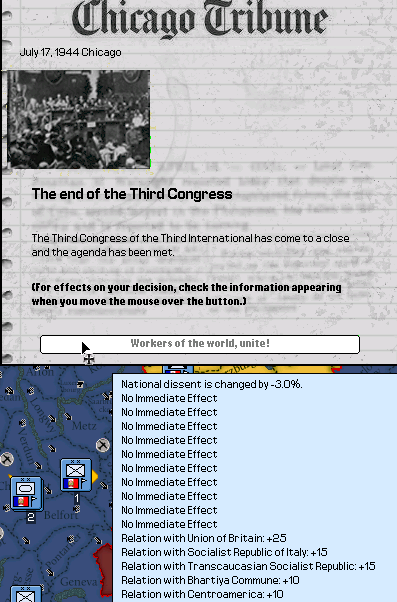 “What’re we gonna do when our apprenticeships are up, Sam?” Silence. We’ve avoided this topic so far. “I don’t know, Leon. I… and don’t be mad at me but… I don’t want to go to Mississippi.” She is smart enough to know that my father was speaking to me specifically in his speech. He wants me to go to Mississippi and learn to take over for him. I didn’t feel at home in Mississippi to begin with when we went back. My strongest memory from the first time there was seeing my uncle die. My father is building something beautiful in Mississippi, but I’ve wondered if going back after this apprenticeship is the right thing to do. The fact that the woman I love is the child of the kind of people we had to throw out to make it possible, it’s just so awkward. So, I make a decision, right there in that folding chair in Soldier Field. “I don’t either, Sam.” She looks up at me, clearly surprised. “So where do you want to go?” “I don’t know. But I don’t want it to be Mississippi. And I want to be with you. And… I want to be somewhere where I can do something…” I can’t figure out the right word for what I mean. “Important… Not that the farms aren’t important but… you know.” She does know. She has been in Chicago too. She’s had the same taste of being this close to the center of gravity, the center of power. She doesn’t want to leave either. Unfortunately, we don’t have any other syndicates to go to besides the ones we belong to. We could join up with one, but the fact is that with our experience, we’d be doing something just as unappealing to us as farming soybeans in Mississippi or counting fish hauls in Washington. We’d start from the bottom. Perhaps it is arrogant of us to expect any different, but we want something else anyway. “We could join the Army, Sam. We have good connections, we could get an interesting post together, like Intelligence or Information or something. See the world and meet people and give us some time to figure out where we want to end up.” She doesn’t say anything, but she doesn’t need to for me to sense the reluctance. “Sam… I know you don’t trust the military but… the war is over. We won’t have to get shot at or nothing. I just… don’t want to go back to being normal, Sam.” She smiles. “Me neither. It’s not a bad idea. I’m just afraid.” “Of what?” She is silent for a few seconds before speaking again. “He shall judge among the nations, and shall rebuke many people: and they shall beat their swords into ploughshares, and their spears into pruning hooks: nation shall not lift up sword against nation, neither shall they learn war any more.” “Scripture, Sam?” “The military is designed to kill people, Leon, and some of the people have to die. Maybe you’re right that they won’t have to.” “But?”  “I doubt it.”
|
|
|
|
So back to Japan, huh?
|
|
|
|
Freudian posted:So back to Japan, huh? At the very least the Pacific. We're already gearing up to take down Australasia, after which there's Hawaii and maybe some bits of the German Pacific. Then we figure out what the hell to do with Delhi... Hopefully we narratively treat the Rhineland occupation as a Ruhr-type deal. Did France annex Wallonia and Luxembourg? I forget.
|
|
|
|

|
| # ? Apr 19, 2024 21:02 |
|
Kavak posted:At the very least the Pacific. We're already gearing up to take down Australasia, after which there's Hawaii and maybe some bits of the German Pacific. Then we figure out what the hell to do with Delhi... Yes, they did.
|
|
|































